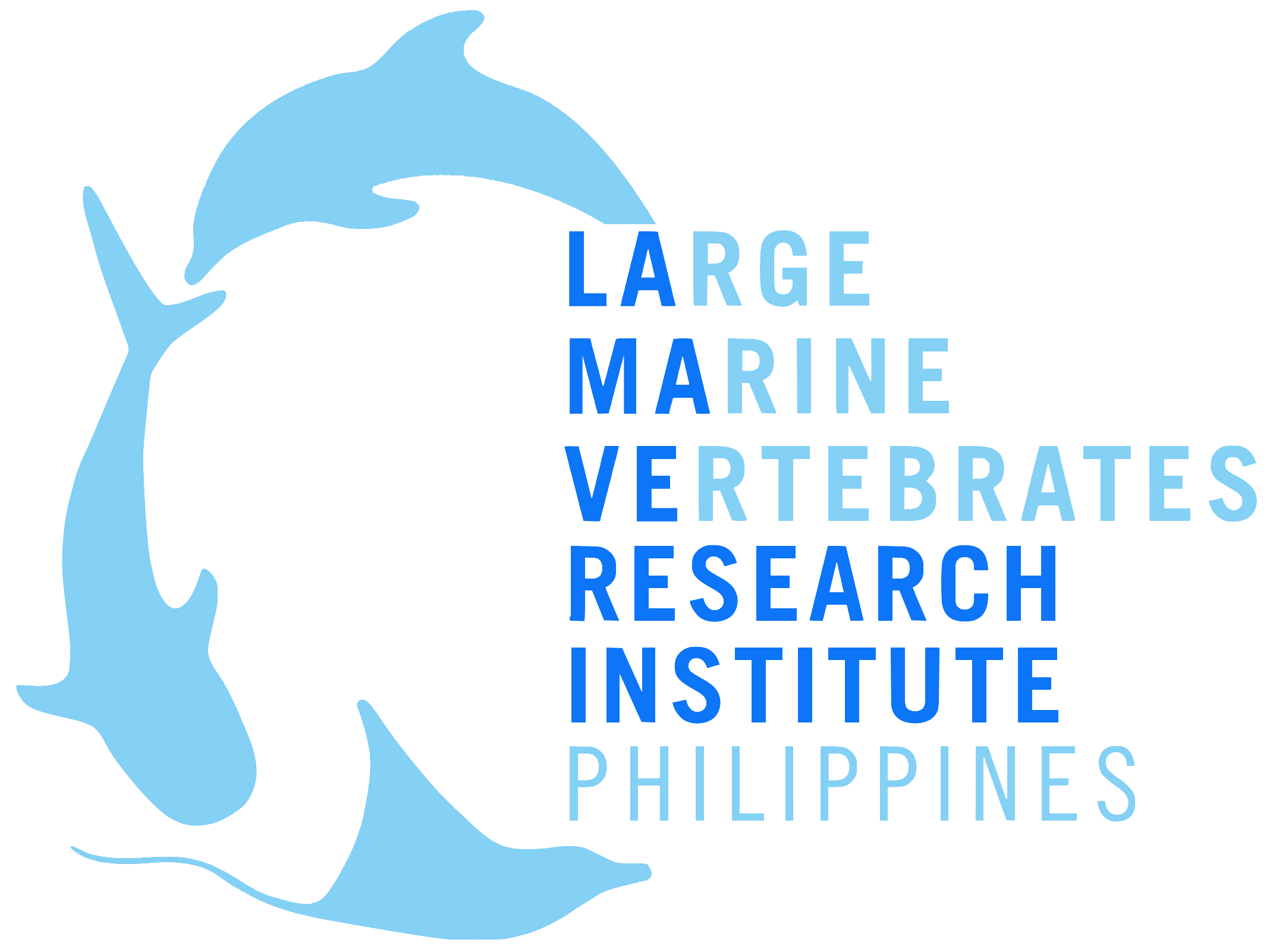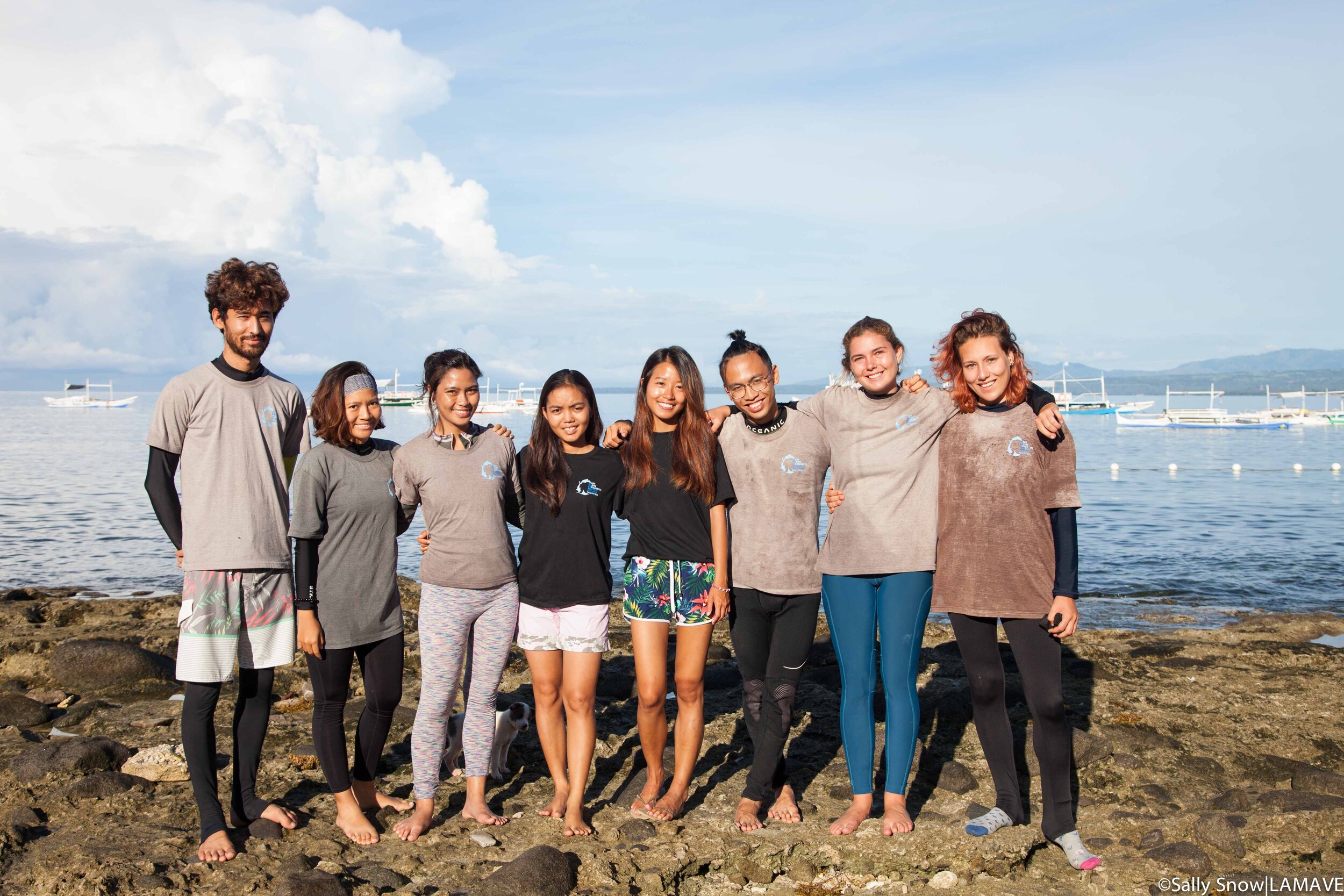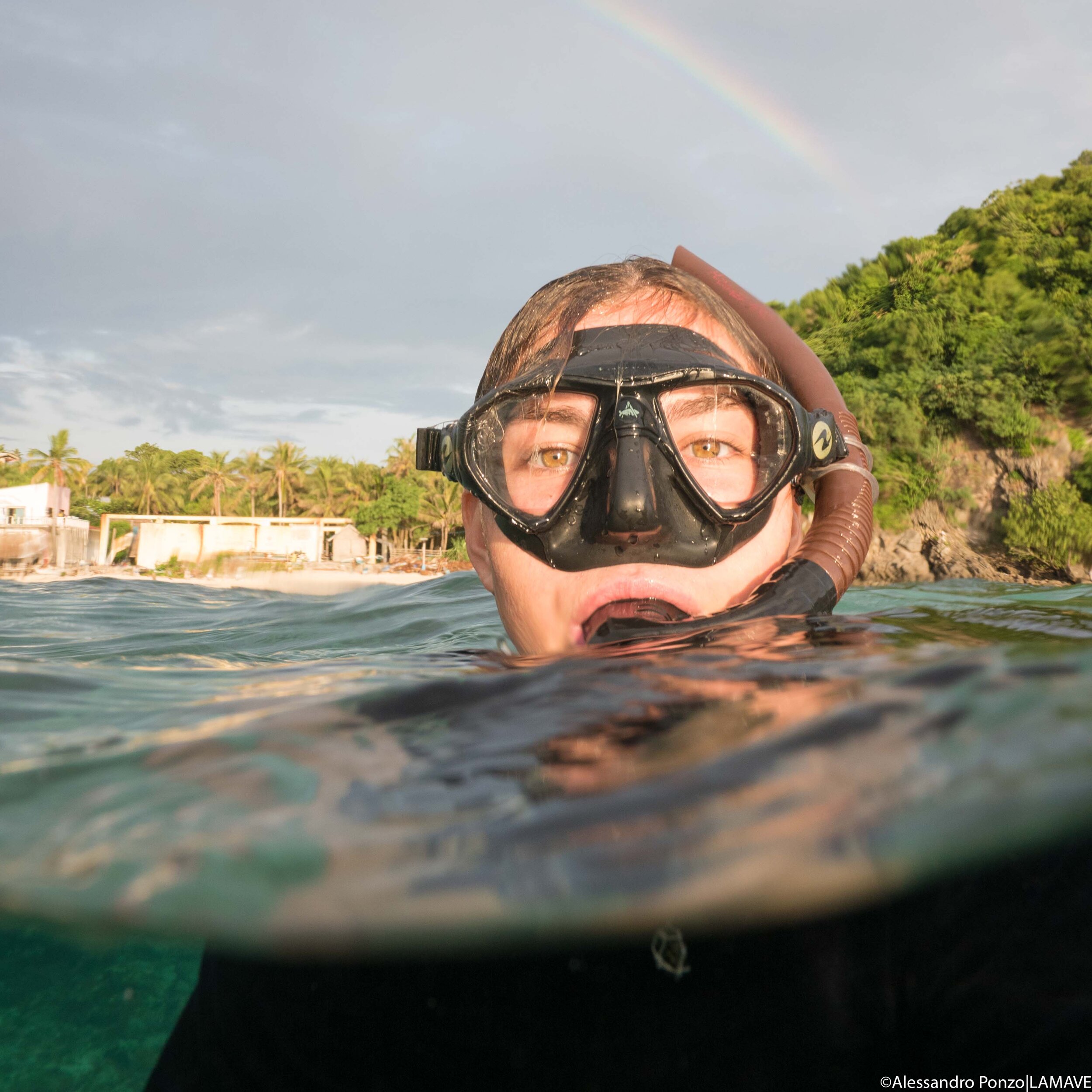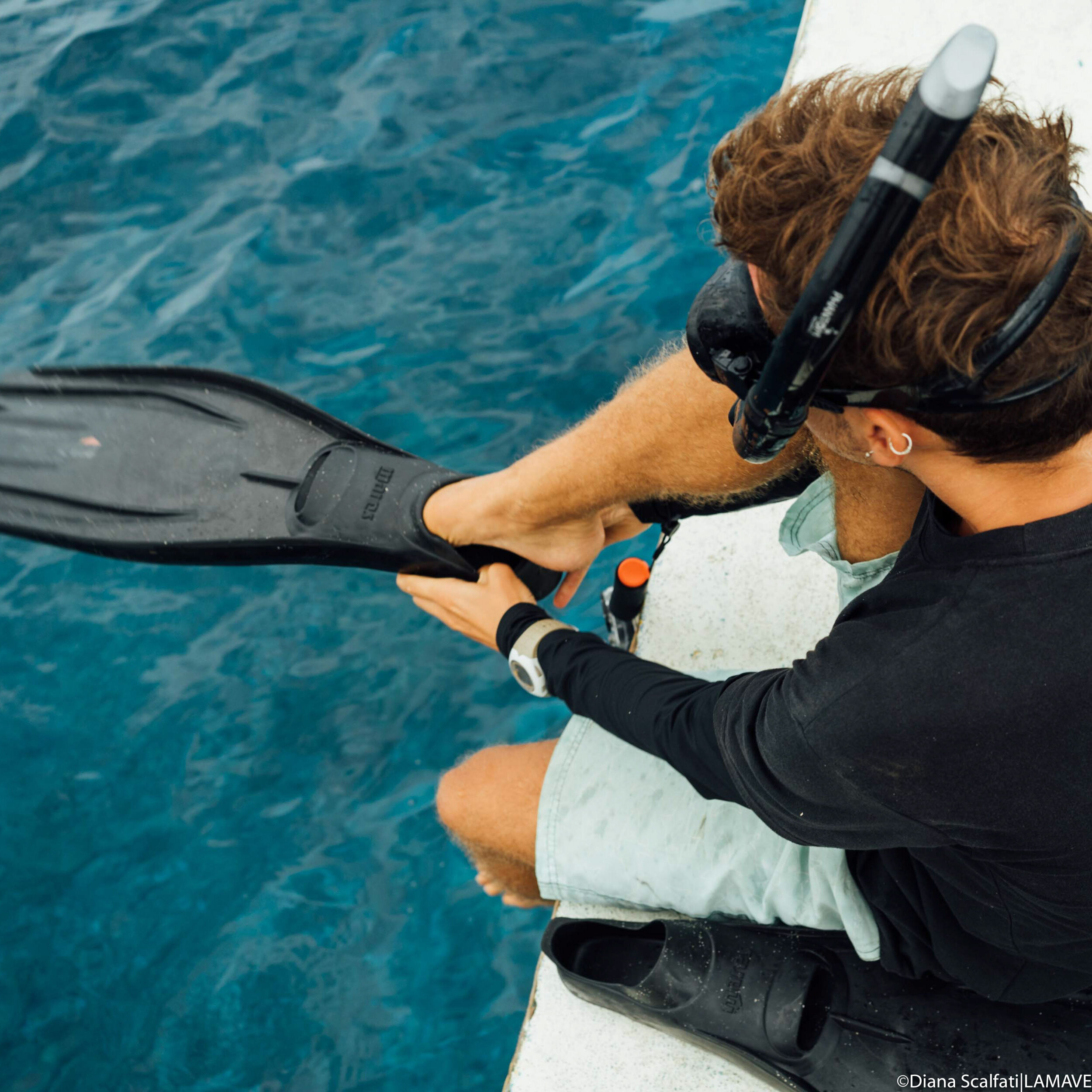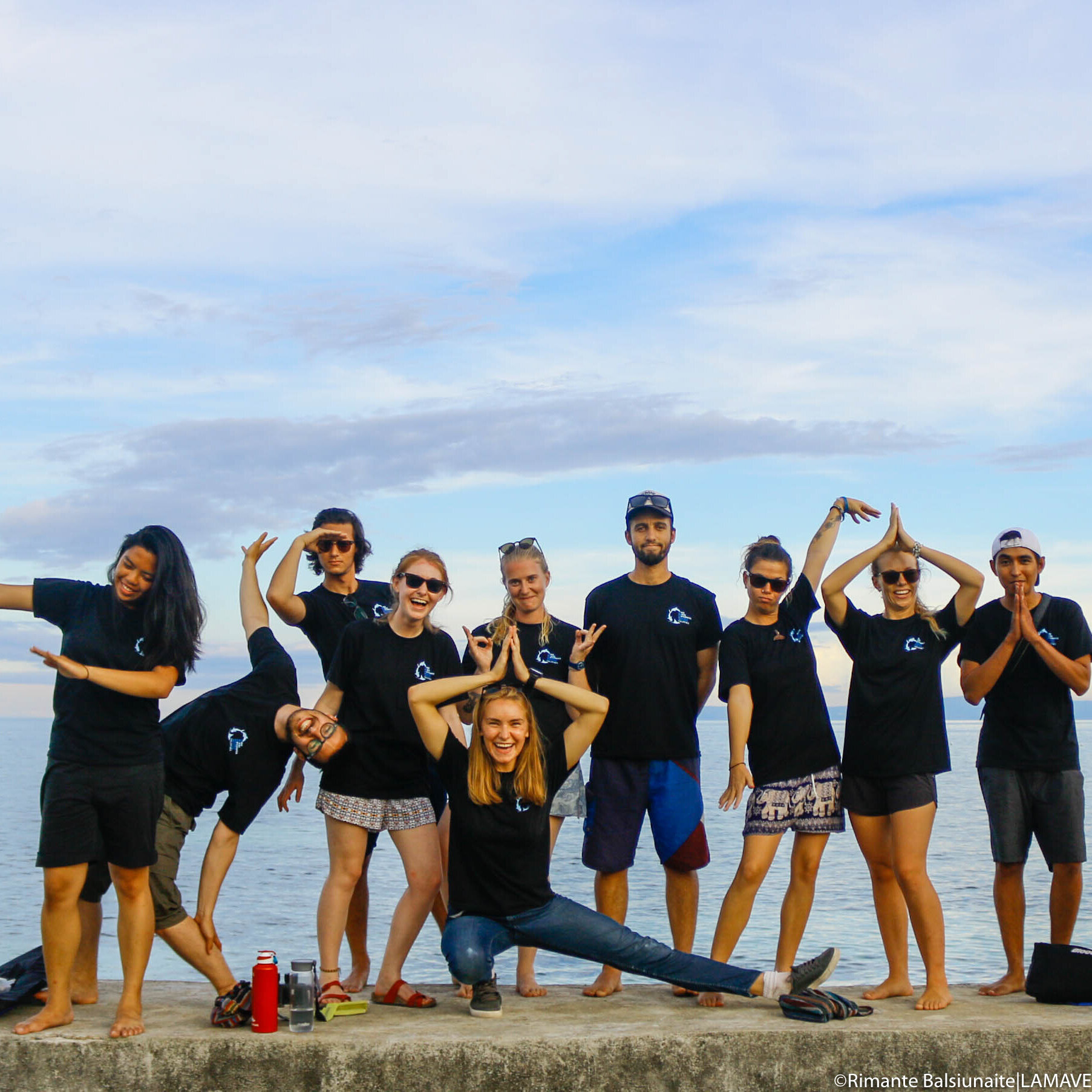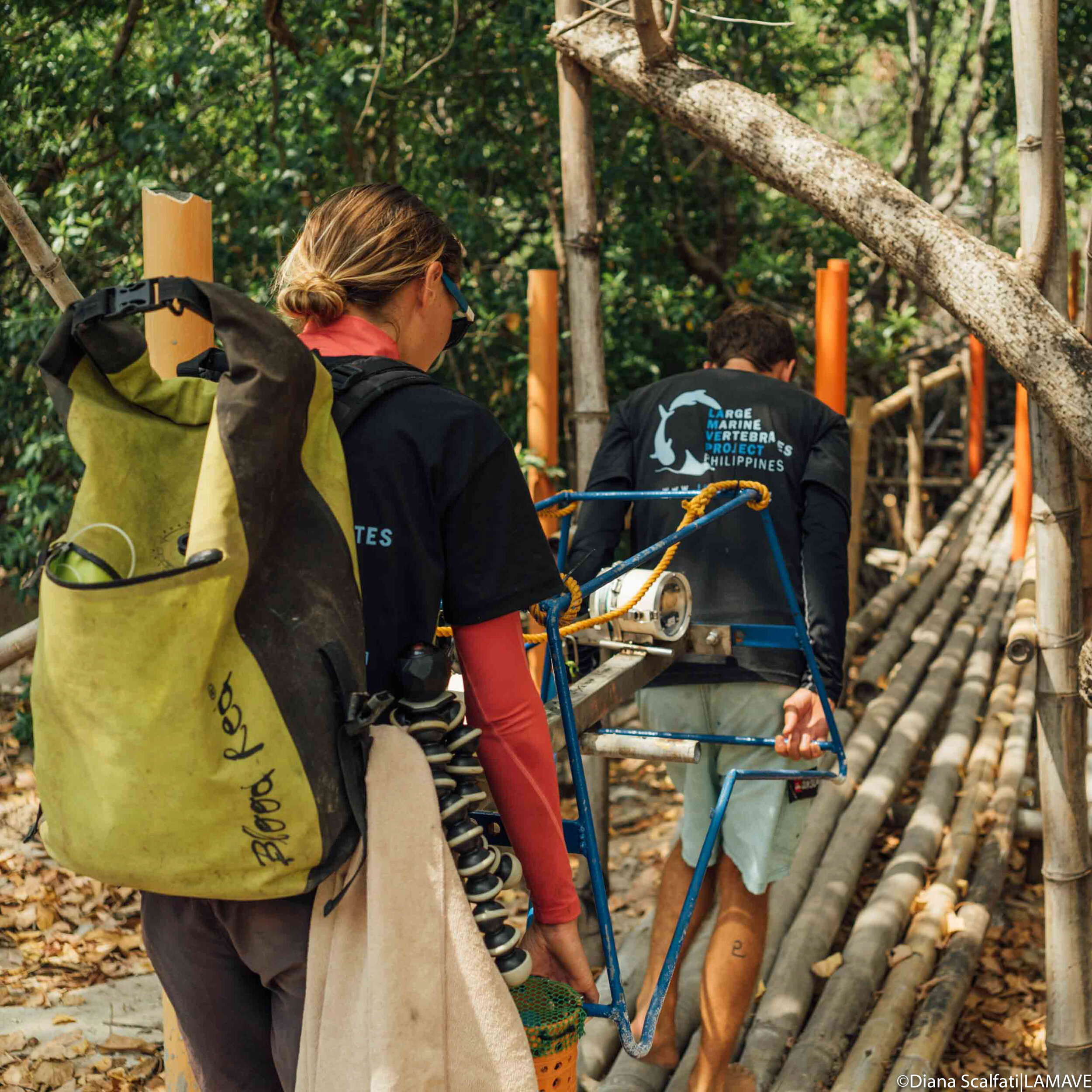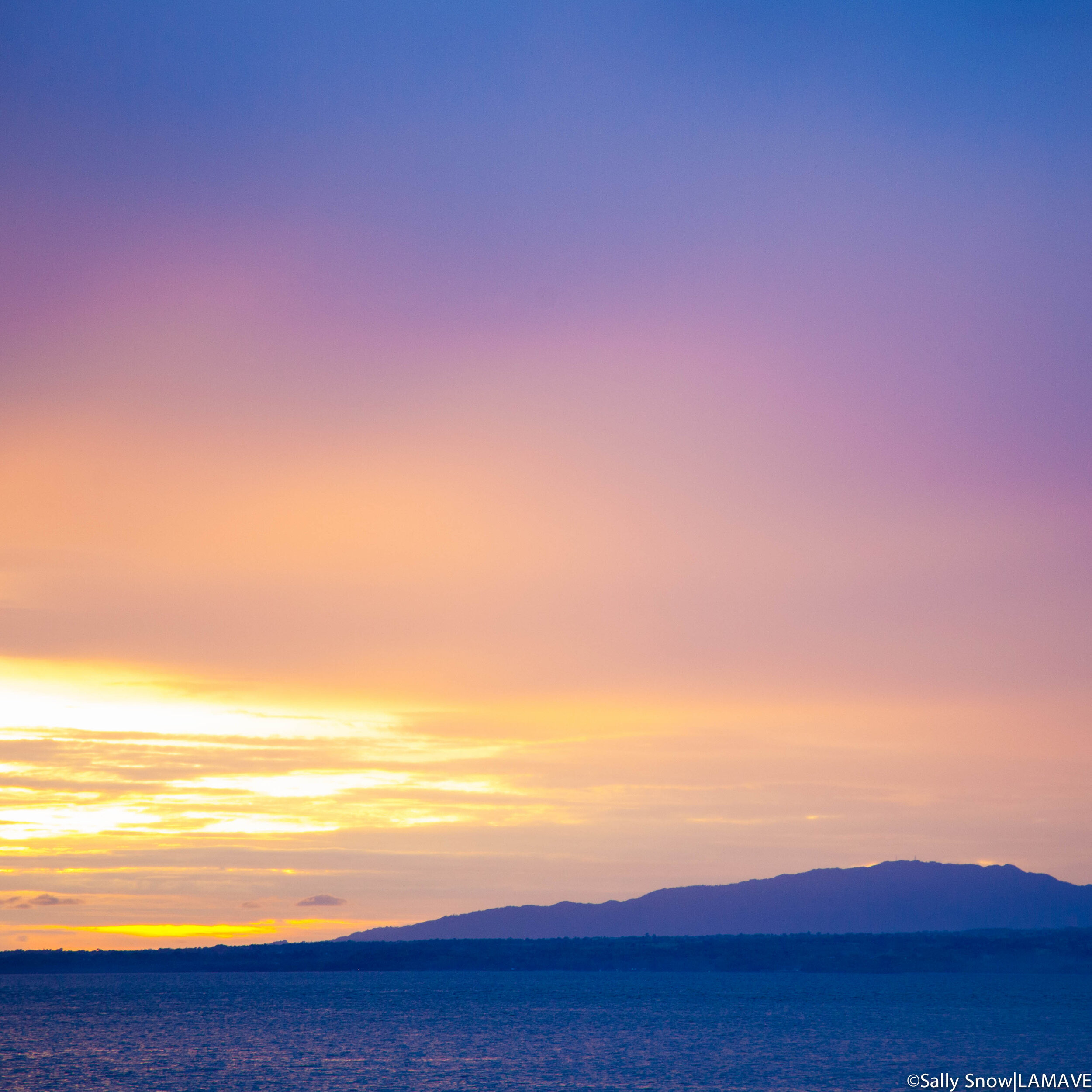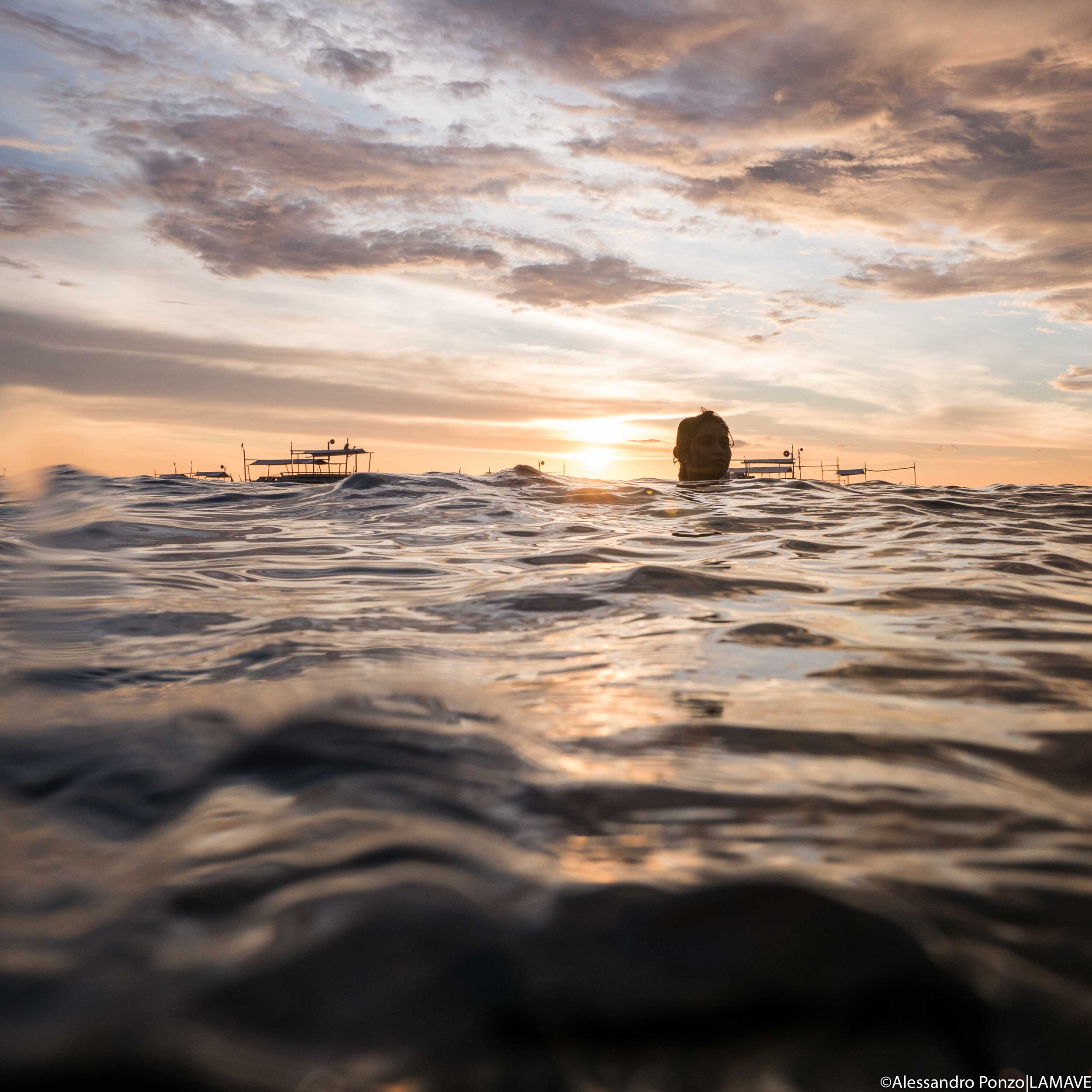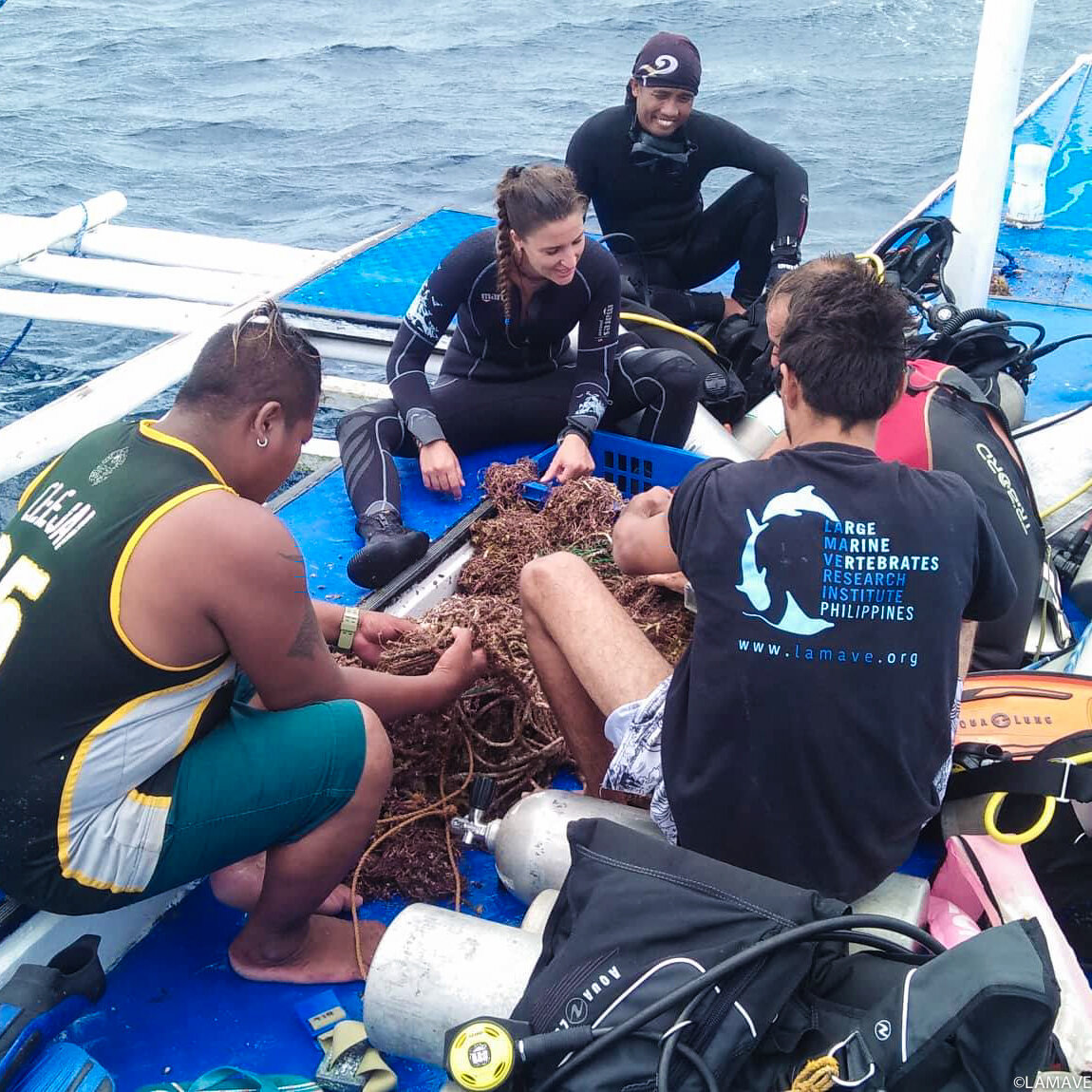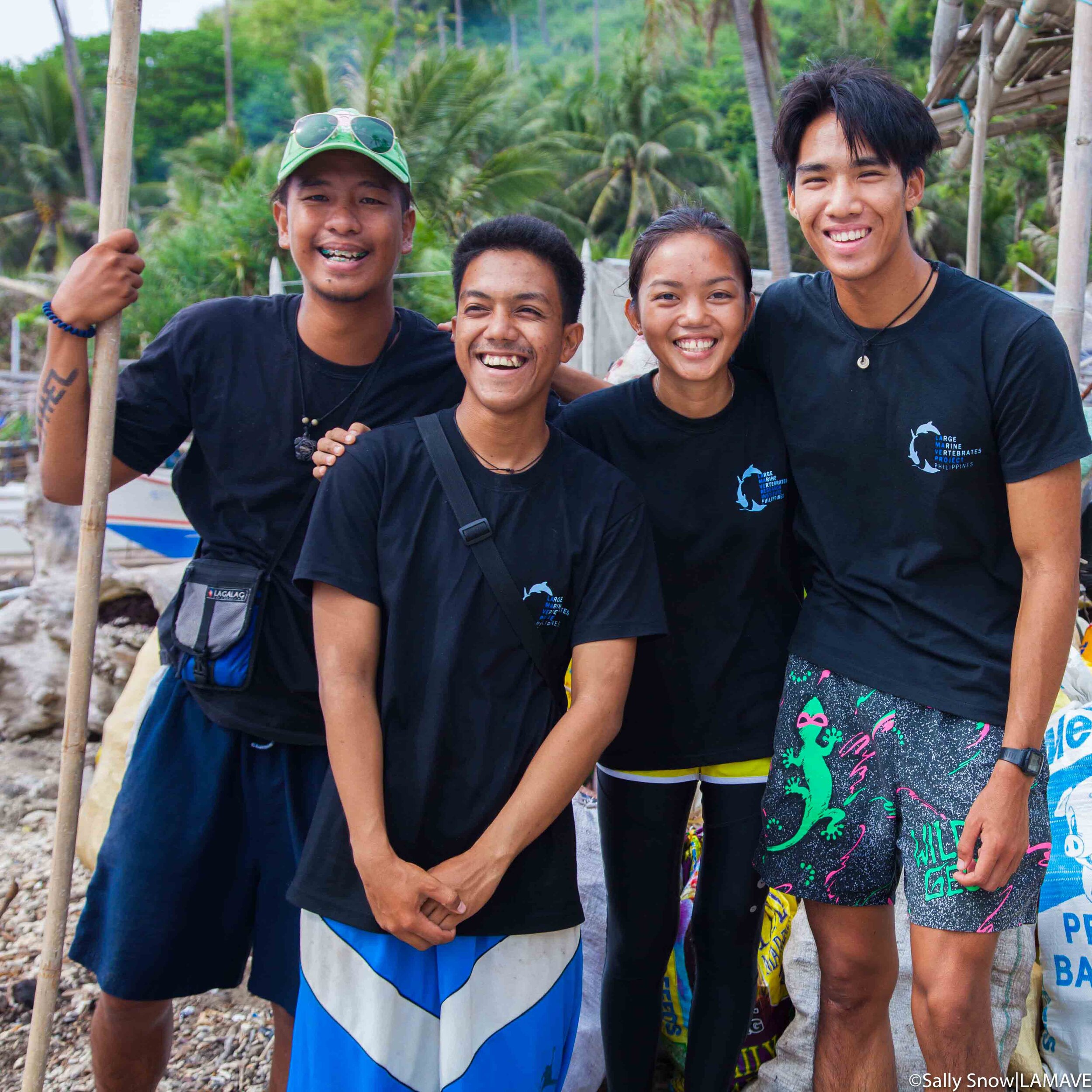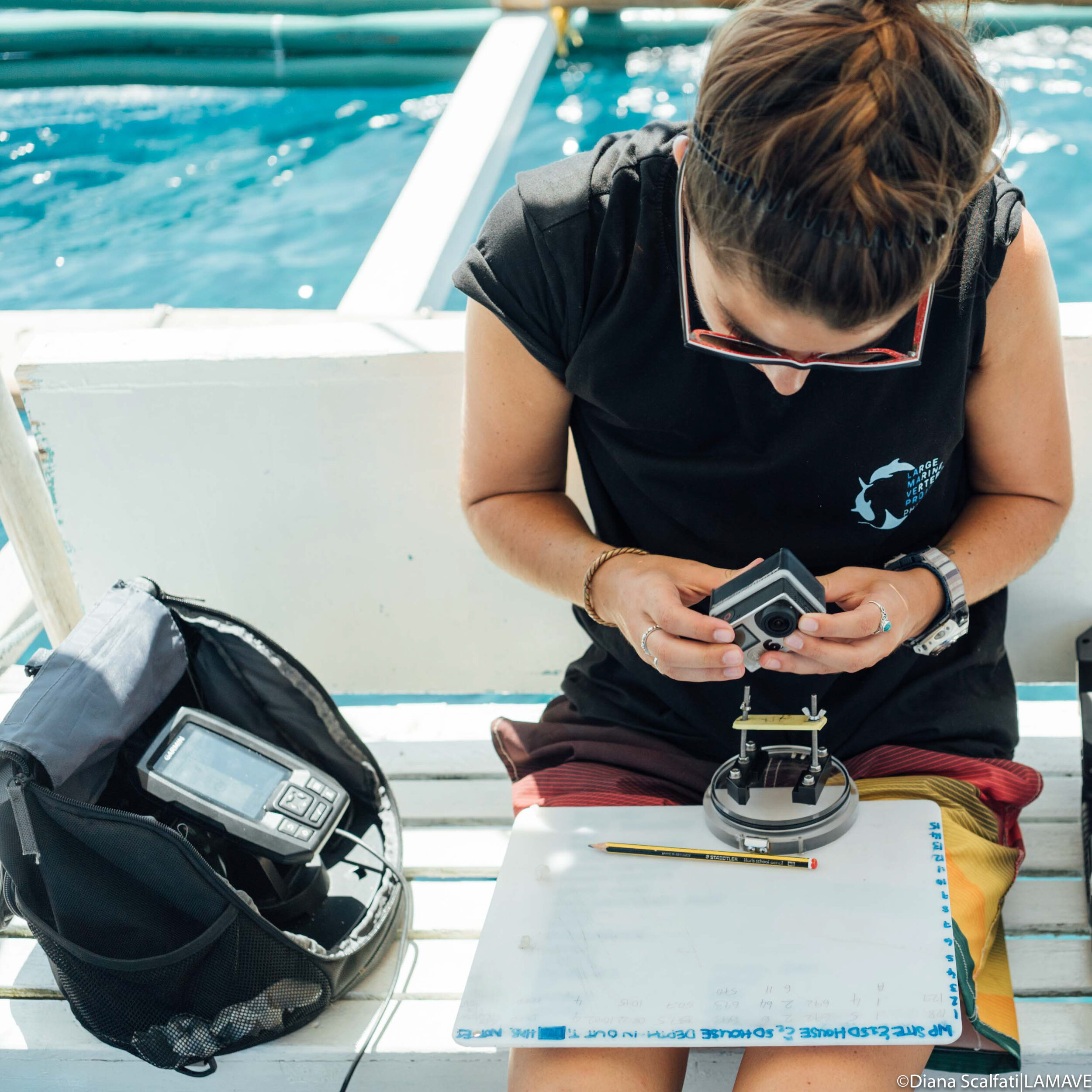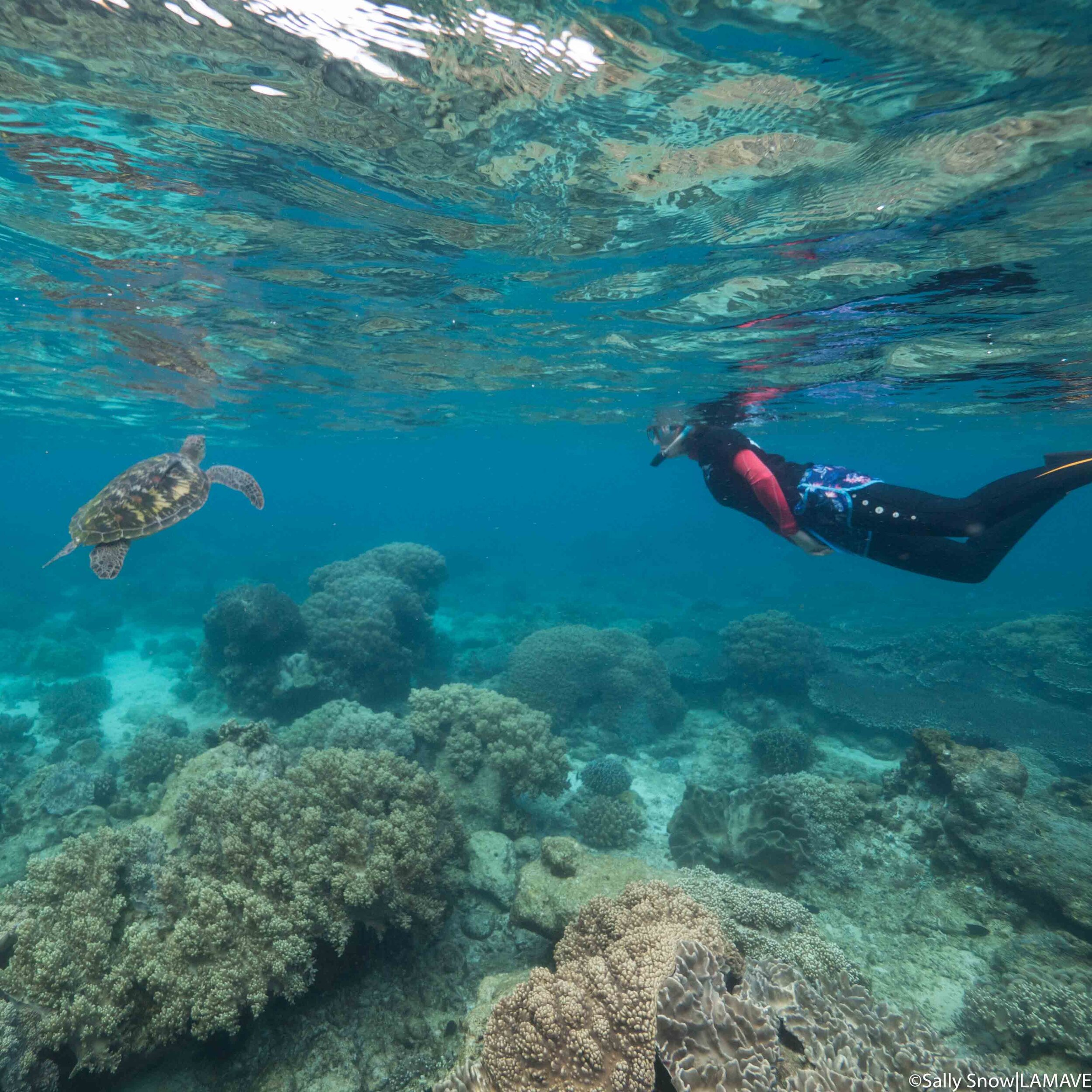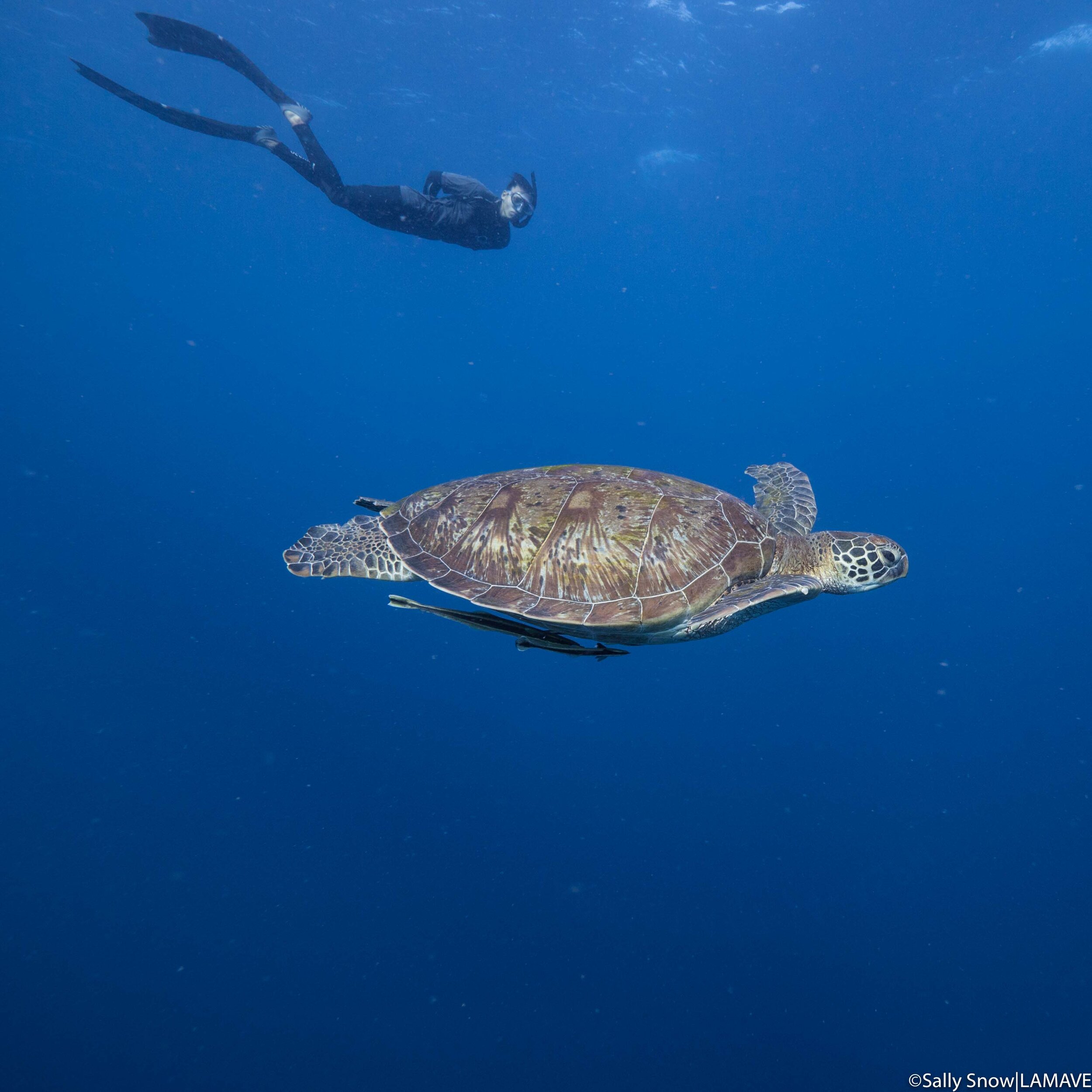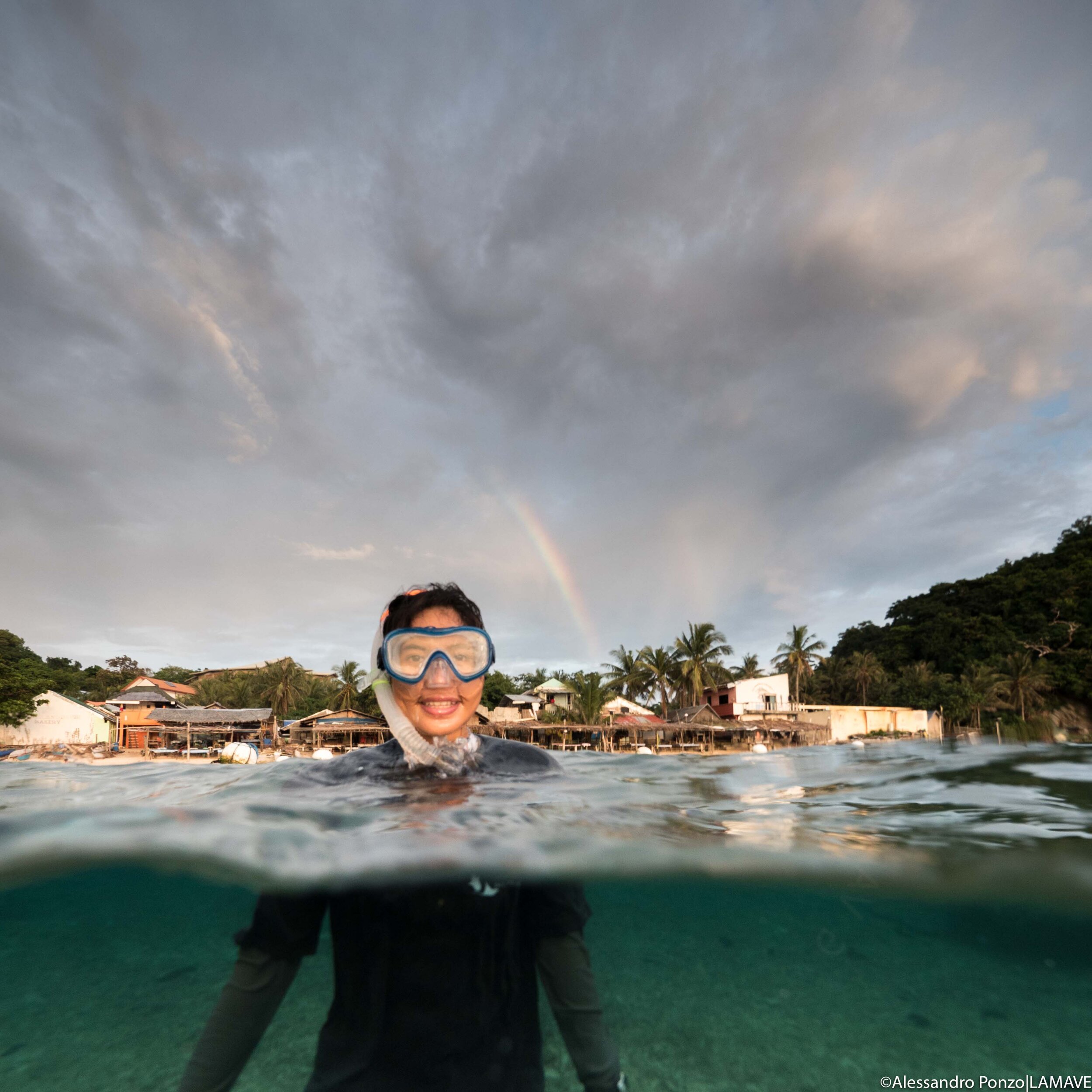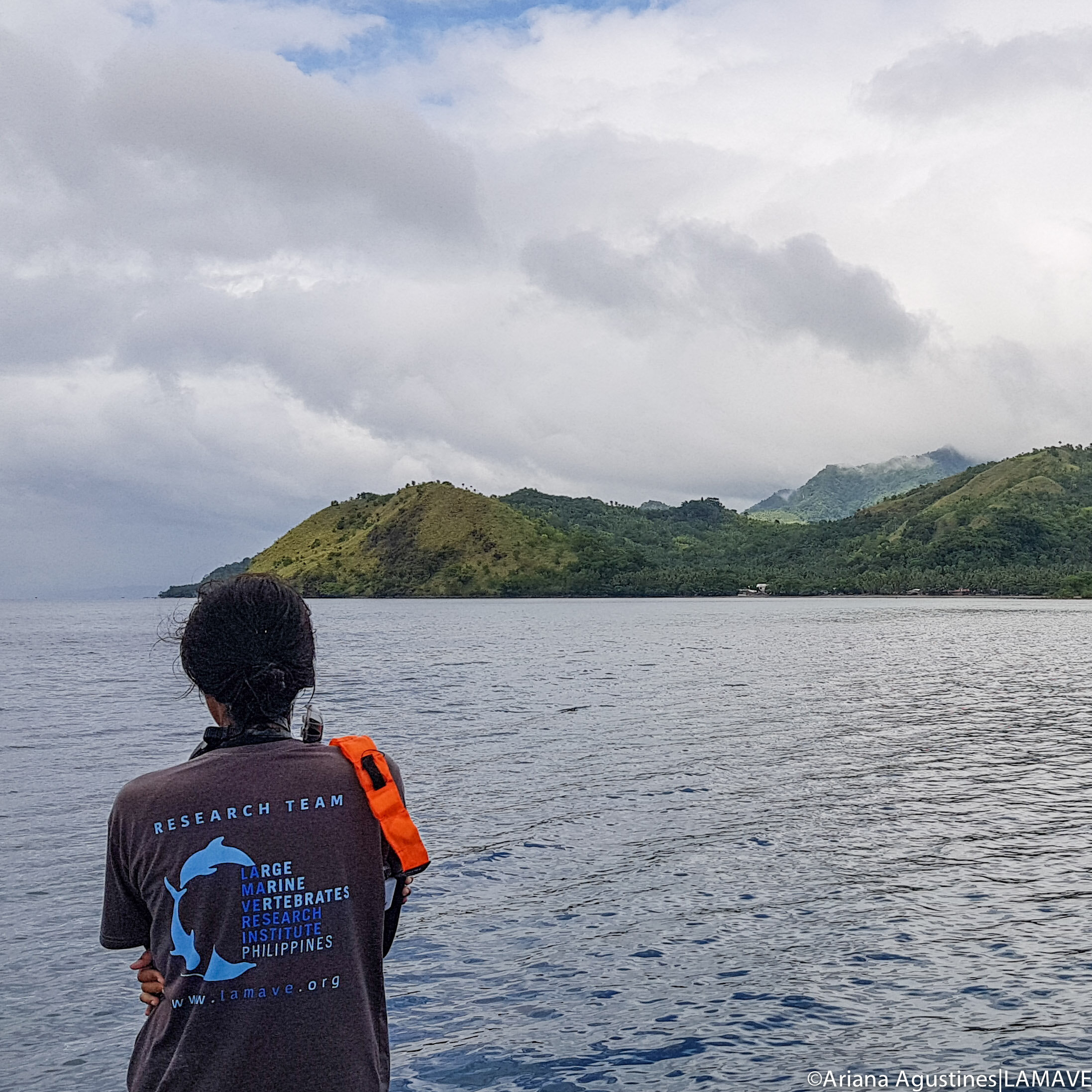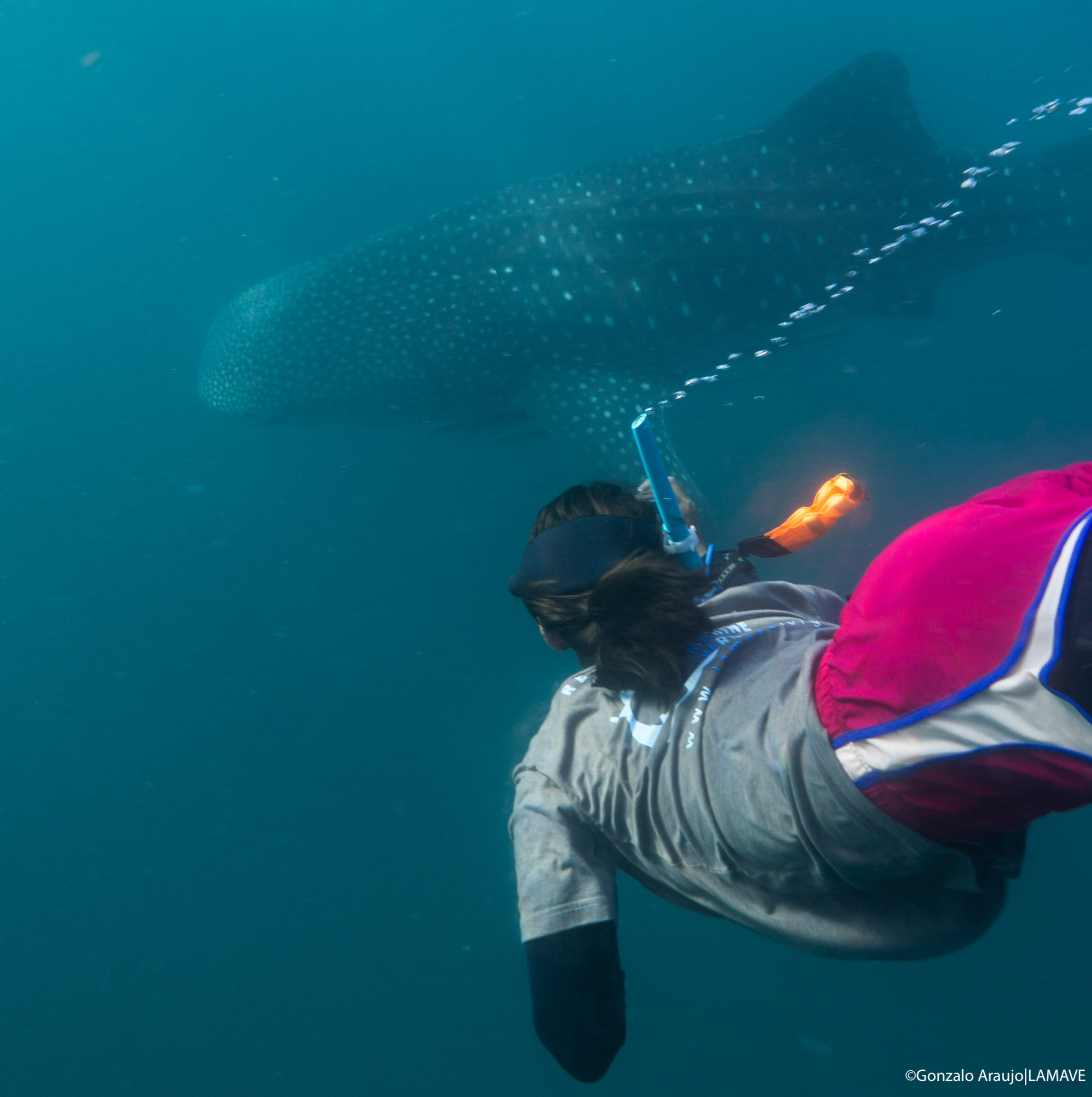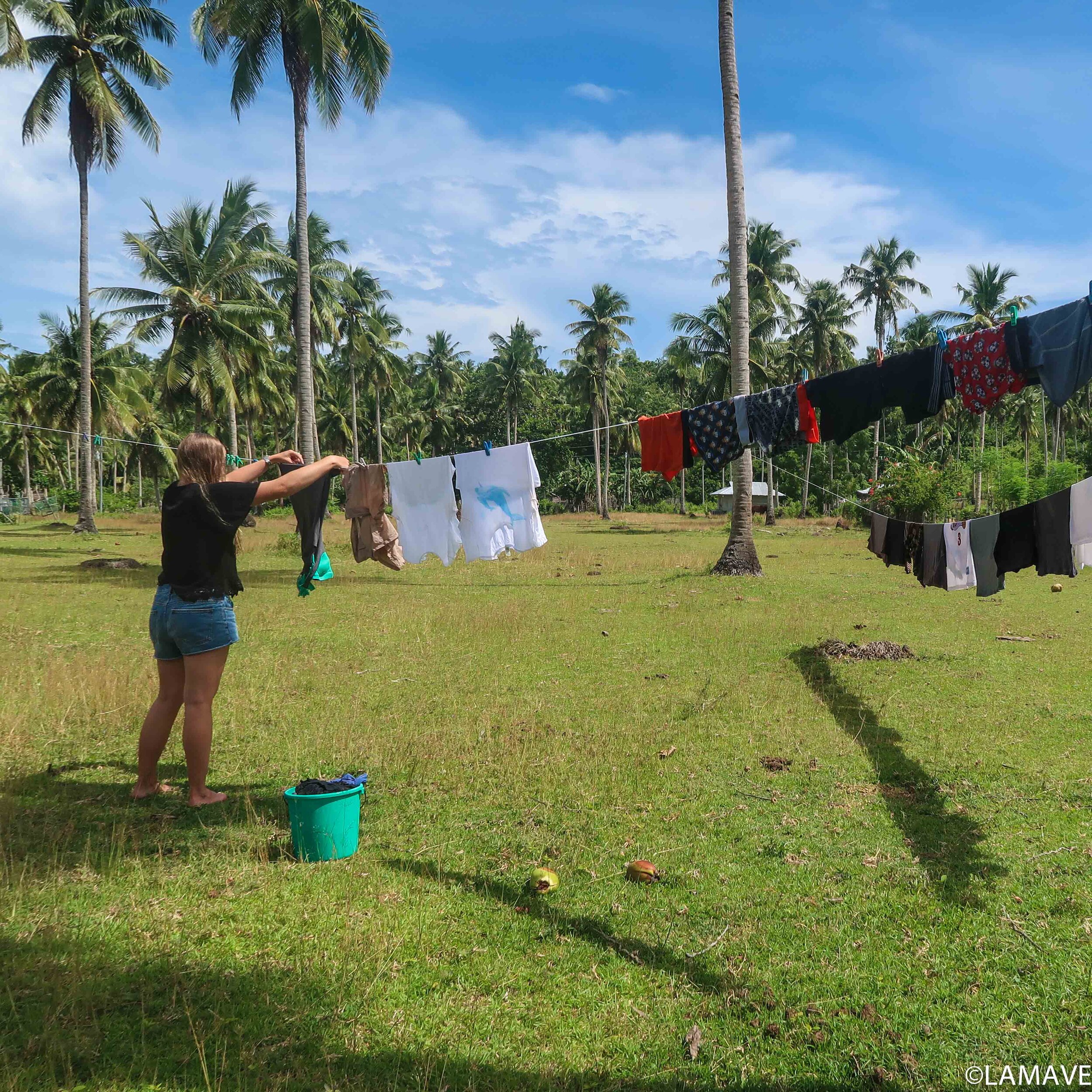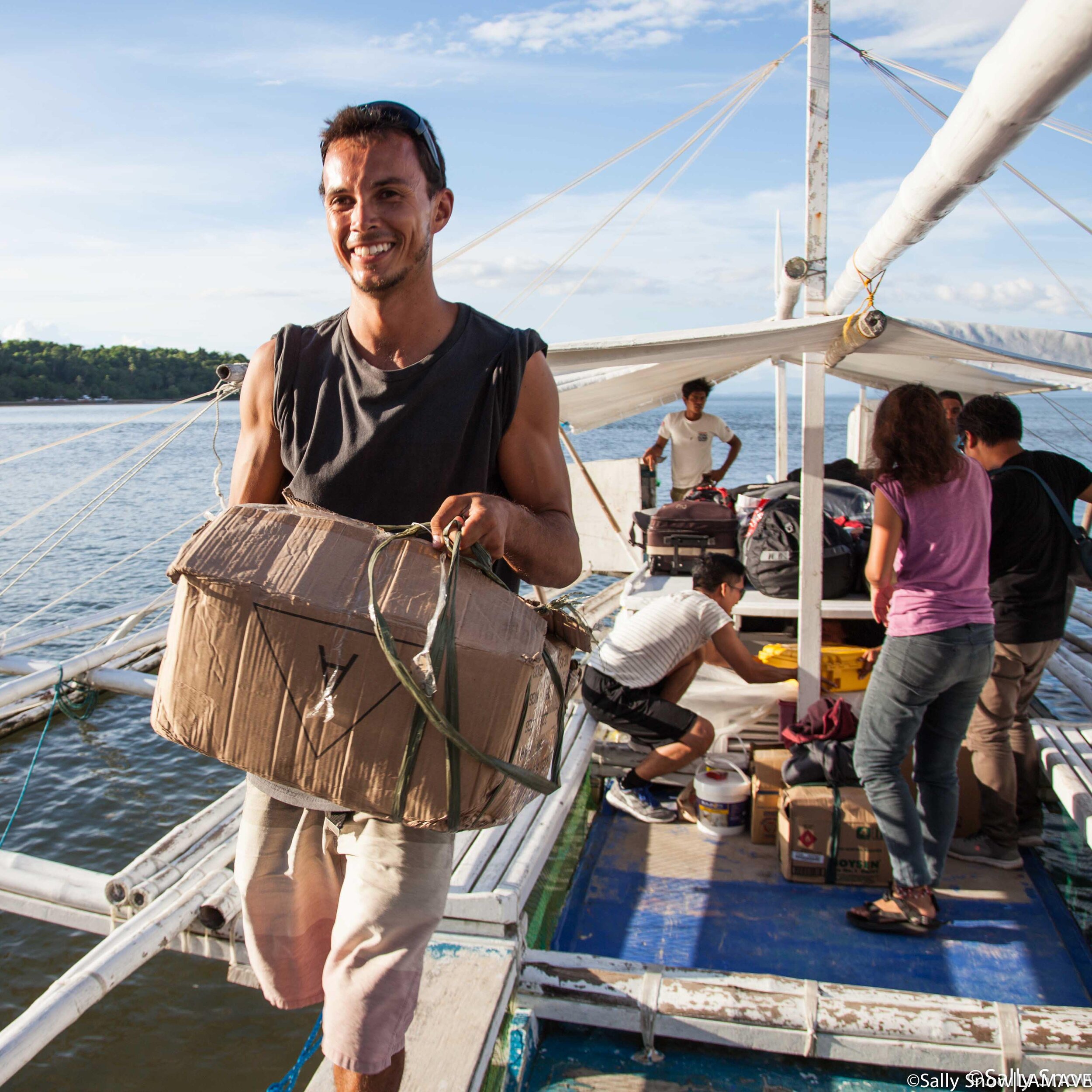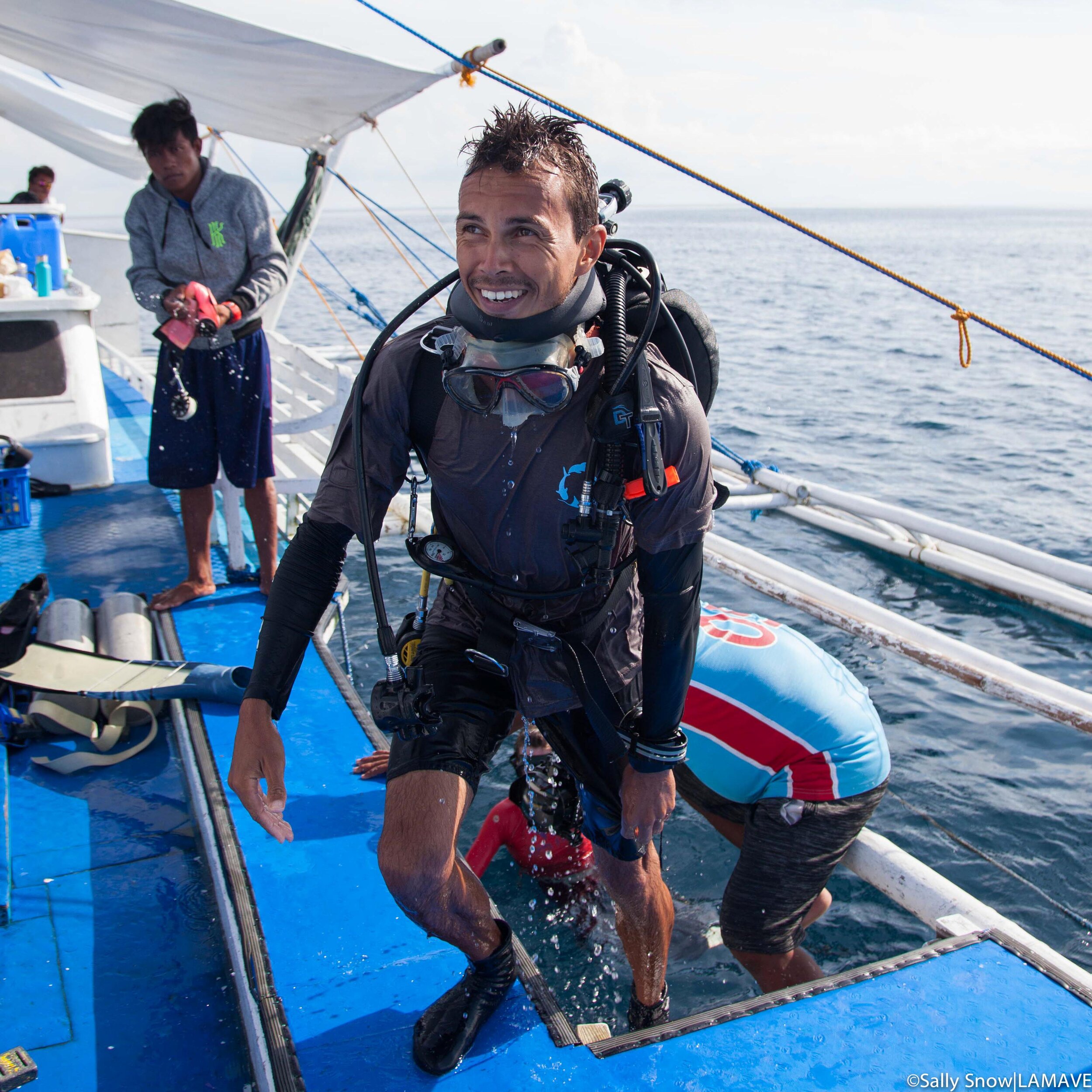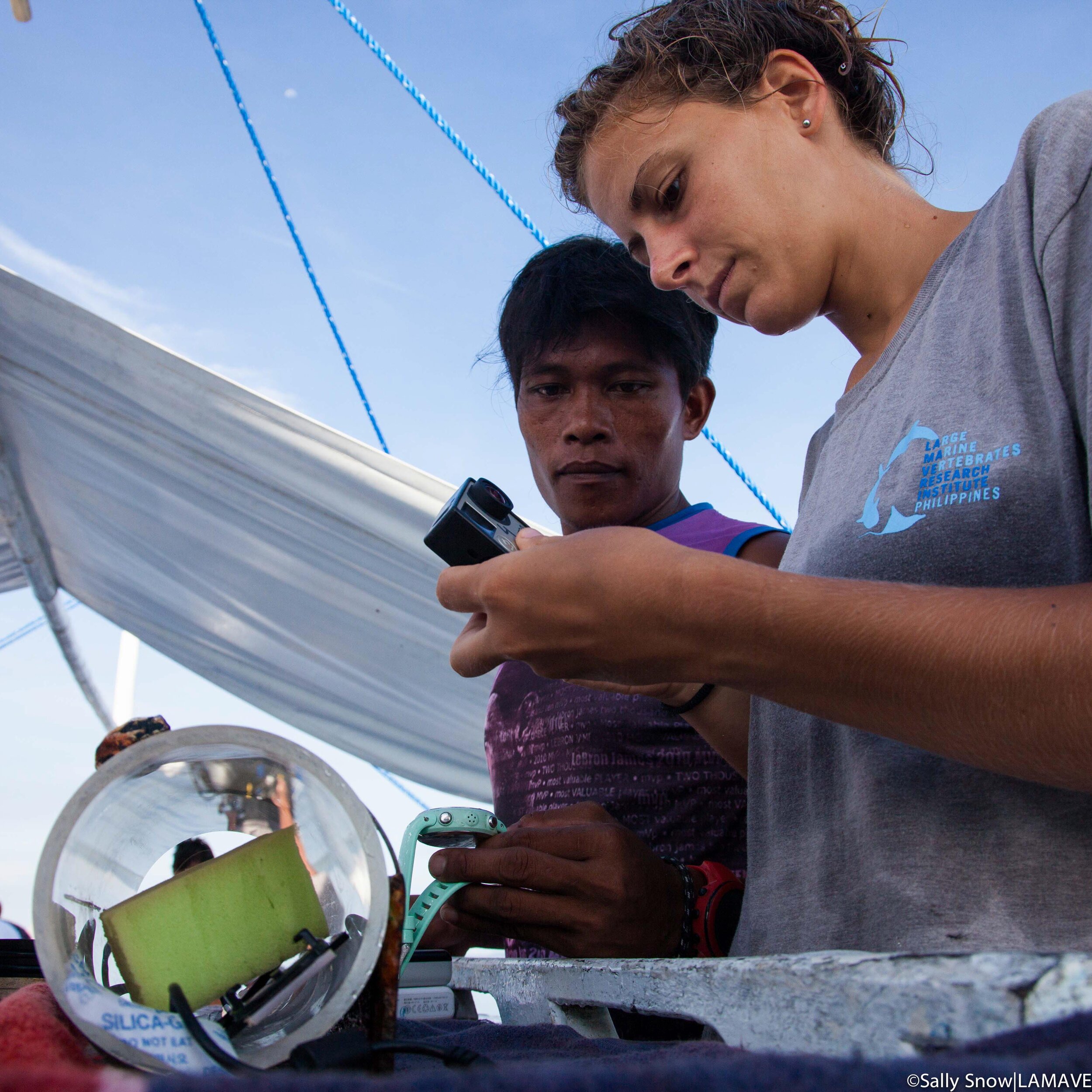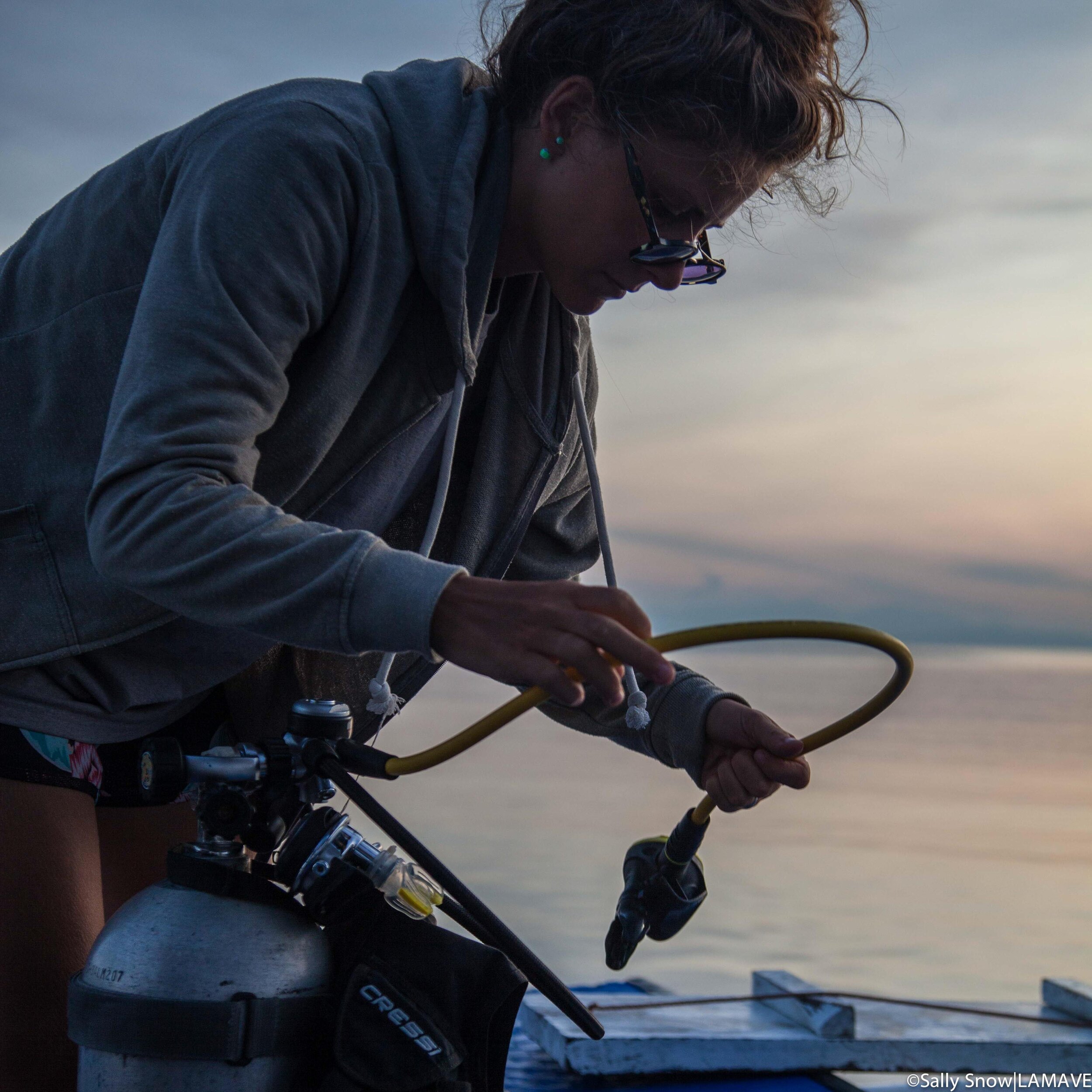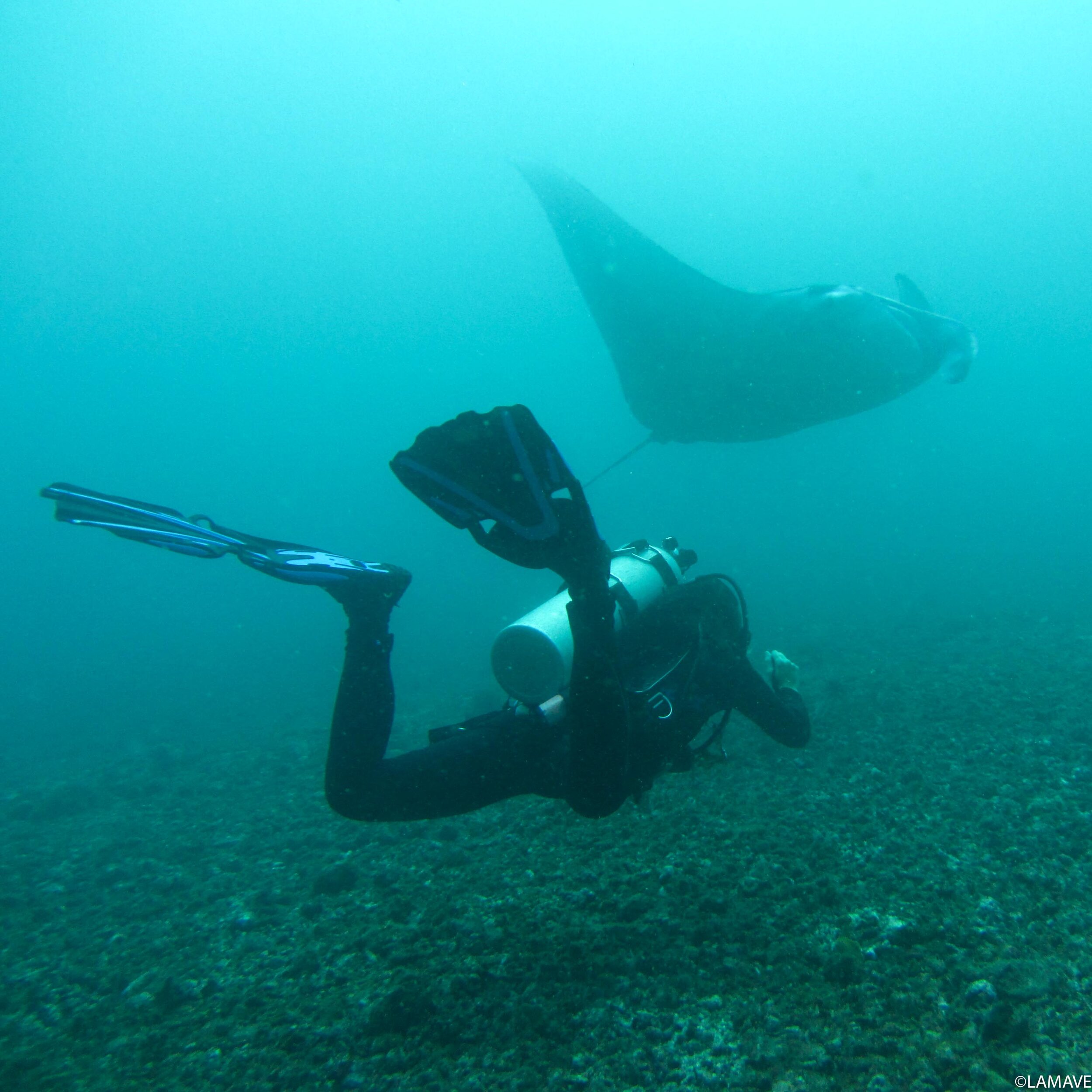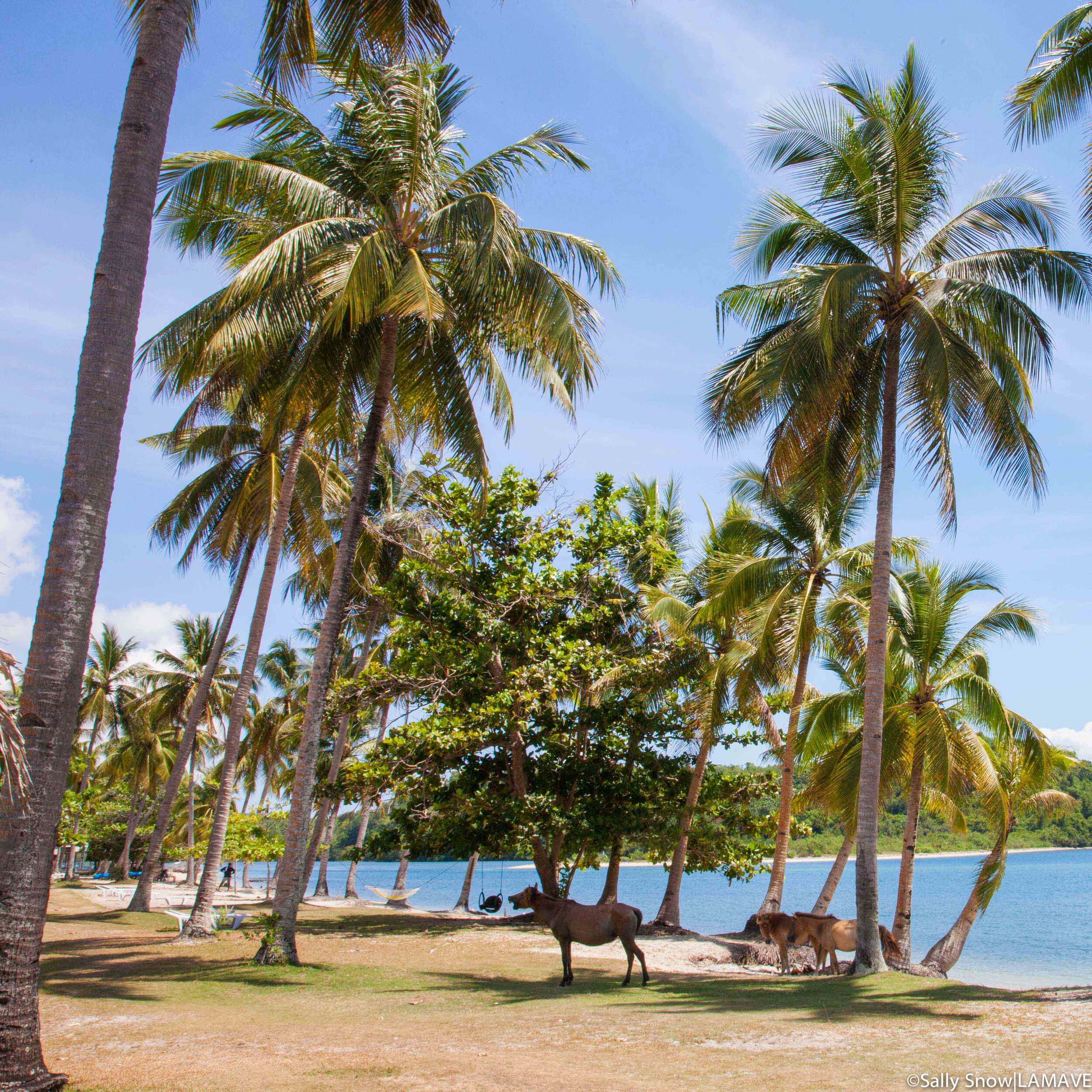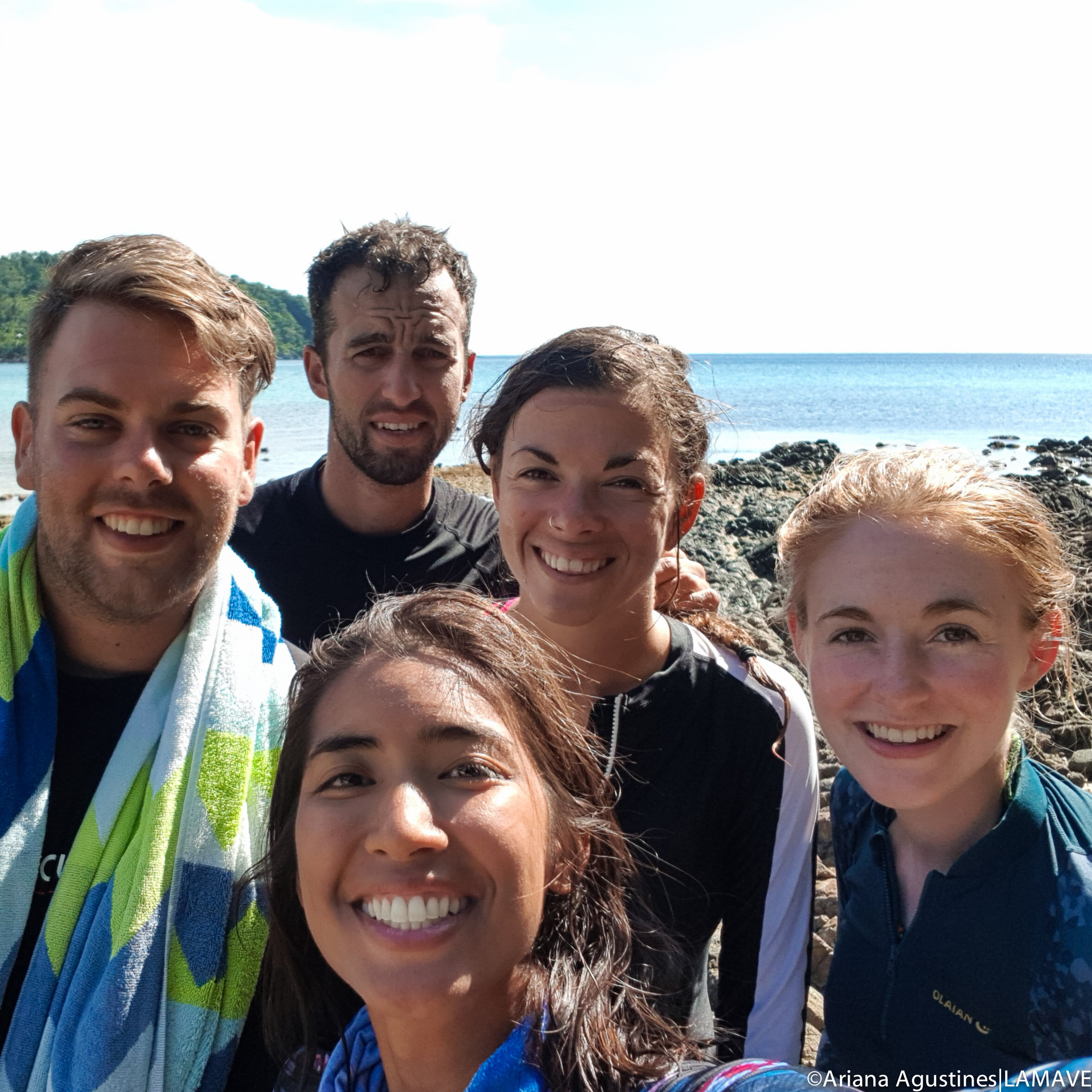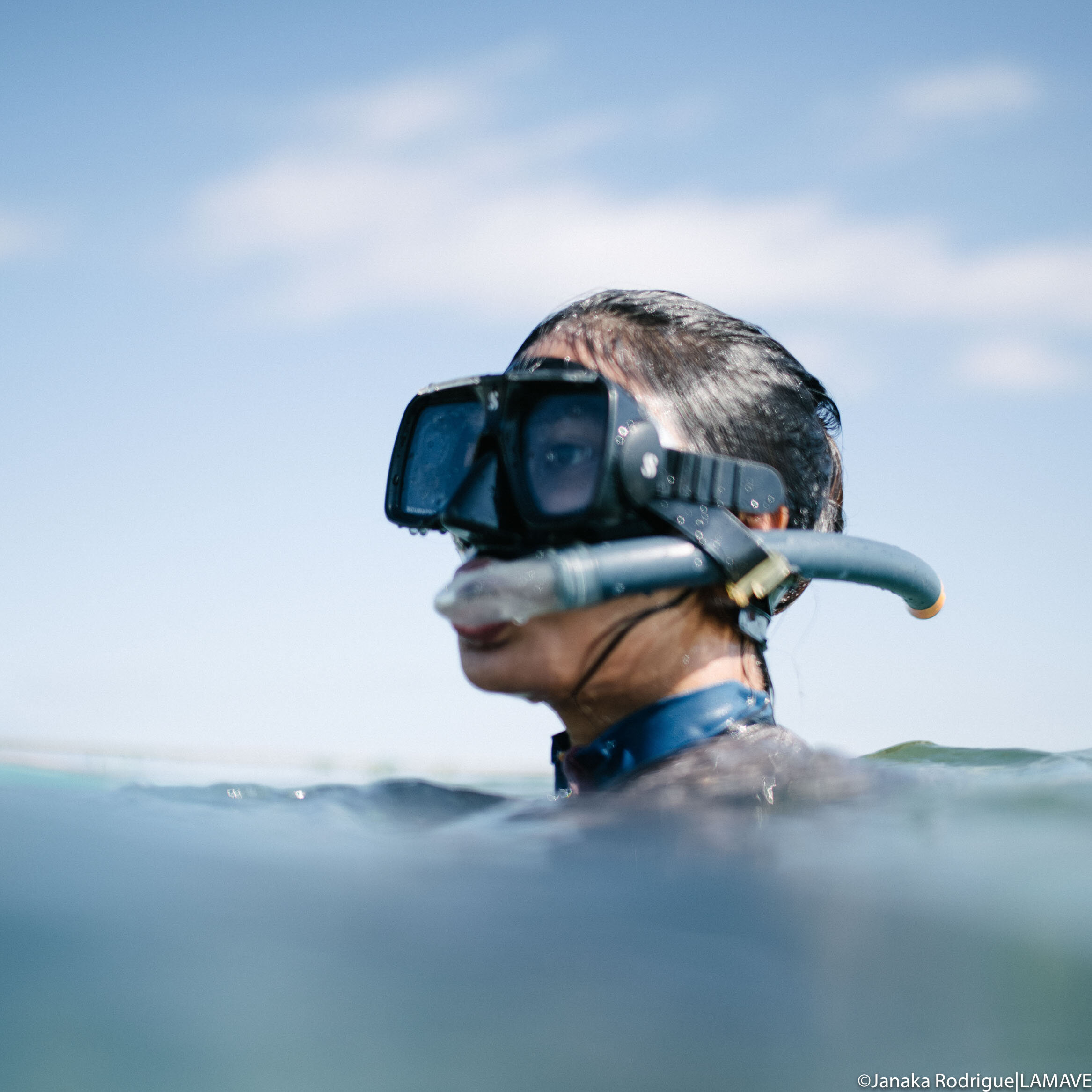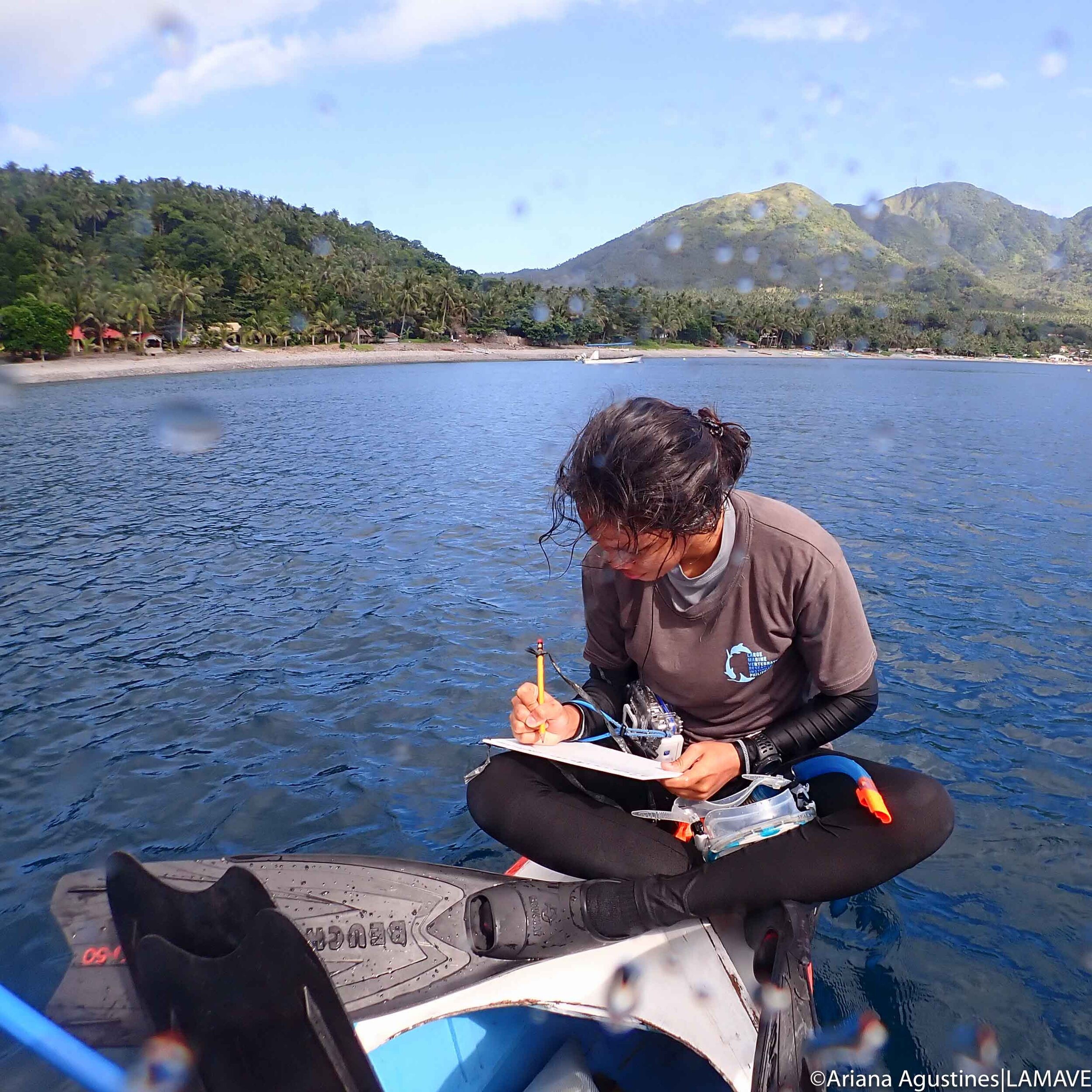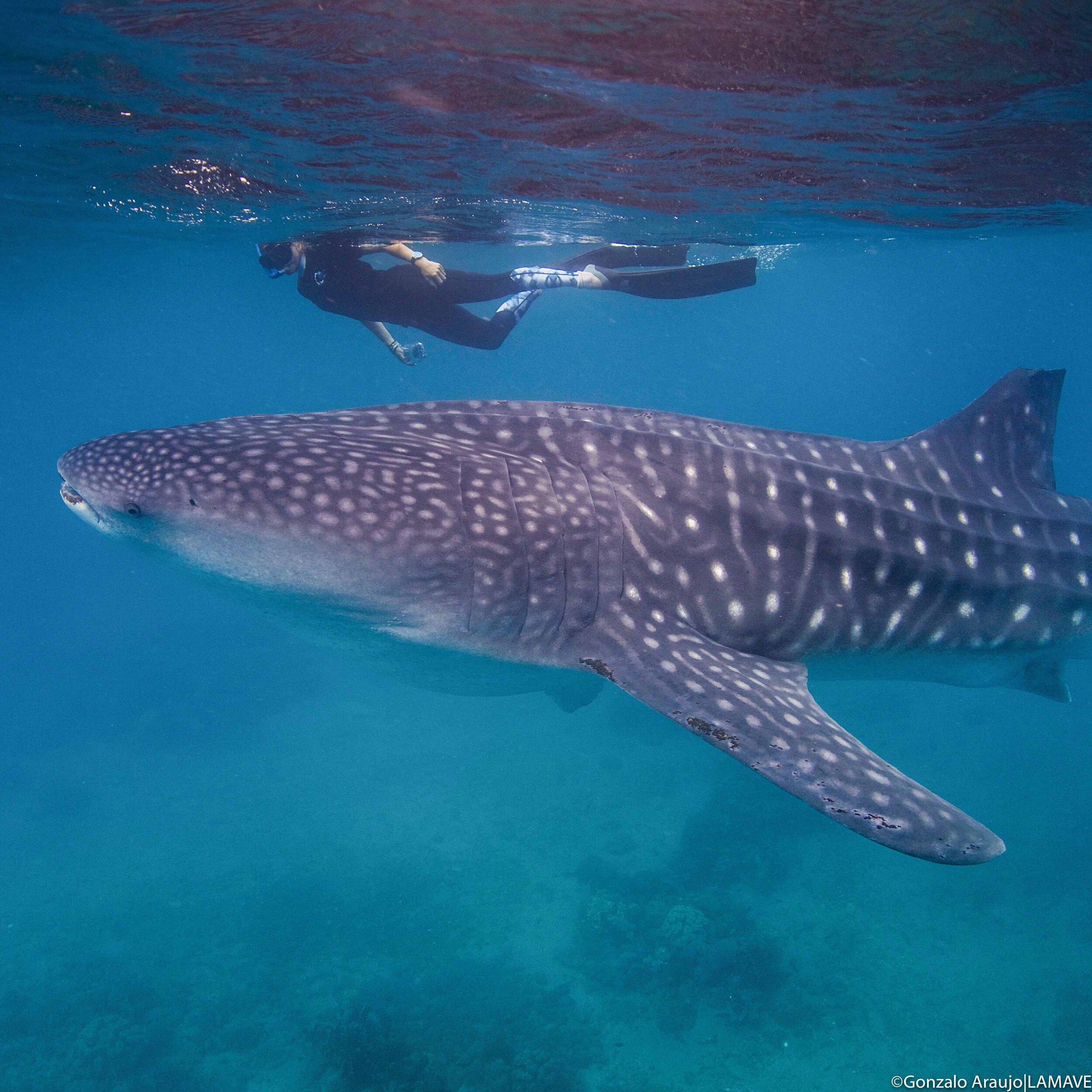Volunteers play a crucial role in LAMAVE’s research & conservation projects. Over the years we have trained >250 volunteers from over 30 countries, joining projects throughout the Philippines.
Volunteering Opportunities
Turtle Nesting
Beach Monitoring & Conservation Project
Whale Shark
Research & Conservation Project
Our projects focus on threatened marine megafauna — including turtles, whale sharks, and manta rays — across different locations in the Philippines.
Each project has a minimum commitment period for all volunteers — this allows our team enough time to help you master the skills needed to collect high-quality data that contributes to conservation actions. It also provides stability for the research team and ensures we always have a fully-trained team on the ground.
All projects have a donation requirement that directly supports LAMAVE’s long-term conservation efforts and your placement. These donations play an integral role in supporting LAMAVE’s conservation outputs: they complement grants and independent funding, and helps support the long-term activity of research and conservation project sites and their outputs and impact.
Marine Turtle Nesting Beach Monitoring & Conservation Project
Project Details and Requirements
This project aims to protect marine turtle nesting beaches through enhanced monitoring and management practices, with a focus on research and data collection at identified priority sites.
-
2025 to 2026 Season
The project will run from November 15 2025 - April 15 2025. Volunteer placements start on the 15th of each Month.
15 November 2025
1 December 2025
15 December 2025
1 January 2026
15 January 2026
1 February 2026
15 February 2026
15 March 2026
Volunteers are required to commit to a minimum of 1 month (e.g. 15 Nov 2025 - 15 Dec 2025; 1 Jan 2026 - 1 Feb 2026) but may also apply for multiple months (e.g. 15 Nov 2025 - 15 Jan 2026)
For more information on the project -check out the Project Profile.
Minimum volunteer commitment: 1 month (with the possibility to extend)
Minimum requirement:
All volunteers must be at least 21 years old and physically able to walk 8km on the sand at night
Donation: $950 USD per month
Whale Shark Research and Conservation Project
Project Details and Requirements
This project aims to identify and understand the habitat use and connectivity of the seasonal aggregation of whale sharks around the different areas in the Philippines through non-invasive tagging and underwater observation.
-
2026 Season
The project will run from May 1 2025 - September 30 2026. There are two volunteer placements to choose from, these are:
1 May 2026 - 14 July 2026 (2.5 months)
18 July 2026 - 30 Sept 2026 (2.5 months)
Volunteers are required to commit to the full duration of the placement (e.g. 1 May 2026 - 14 Jul 2026; 18 July 2026 - 30 Sept 2026) but may also apply for both placements (total 5 months).
For more information on the project -check out the Project Profile.
Minimum volunteer commitment for 2026: 2.5 months (with the possibility to extend)
Minimum requirement:
All volunteers must be at least 21 years old, have excellent swimming skills and are able to freedive up to 7 meters.
Donation: $950 per month
You can learn more about how these research projects on manta rays, whale sharks, and turtles fit into wider program goals and conservation outputs HERE.
“I can truly recommend volunteering with LAMAVE to everyone, who loves the ocean and wants to contribute to its protection. I have learned so much as a person, but I have also learned so much as a diver – and I enjoyed every minute of it.”
Why Volunteer?
Why Volunteer?
Contribute to Conservation
Volunteers are our manpower in the field. For example, since 2012, our volunteers have identified >1400 individual whale sharks - helping lead to the finding that the Philippines is the second largest known population of whale sharks in the world.
Gain On-The-Ground Field Experience and Research Skills
You’ll learn and apply research methods such as photo-identification and citizen science. But you’ll also experience the conservation challenges of finding the balance between humans and wildlife in a developing world.
Improve Your Free Diving
or SCUBA Diving Skills
Our teams conduct surveys through free diving or scuba diving, depending on the project site. You’ll arrive a good swimmer, but leave a skilled in-water researcher.
Experience Incredible Wildlife Encounters
We study some of the most charismatic marine animals in the world. You’ll be joining teams studying whale sharks, turtles and/or manta rays.
Be Part of an International Team
Our teams are led by local experts and are composed of international and local volunteers. All our research projects work alongside local communities. You’ll meet new people, share life experiences, and be immersed in the rich culture of the Philippines.
Align your University Placement with LAMAVE
If you’re looking to complete a university placement, internship or gather data for your thesis then consider applying to one of our listed opportunities. More info HERE
Life on Site
Accommodation
Our project houses are communal, shared living space.
All team members are required to stay at the project house throughout their stay, this is for health and safety and for team work purposes.
All project houses have a kitchen, bathroom and a shared place where you can lounge and work. You’ll be provided with a bed in a shared room.
Due to the remoteness of some of our sites some project houses have limited signal (phone and internet data), electricity and water. For example some of our sites are based on islands where electricity is only available at certain periods of the day or where we collect shower water from a well and drinking water from another town.
Part of your role as a volunteer is helping keep the project house clean and contributing to daily chores such as cooking.
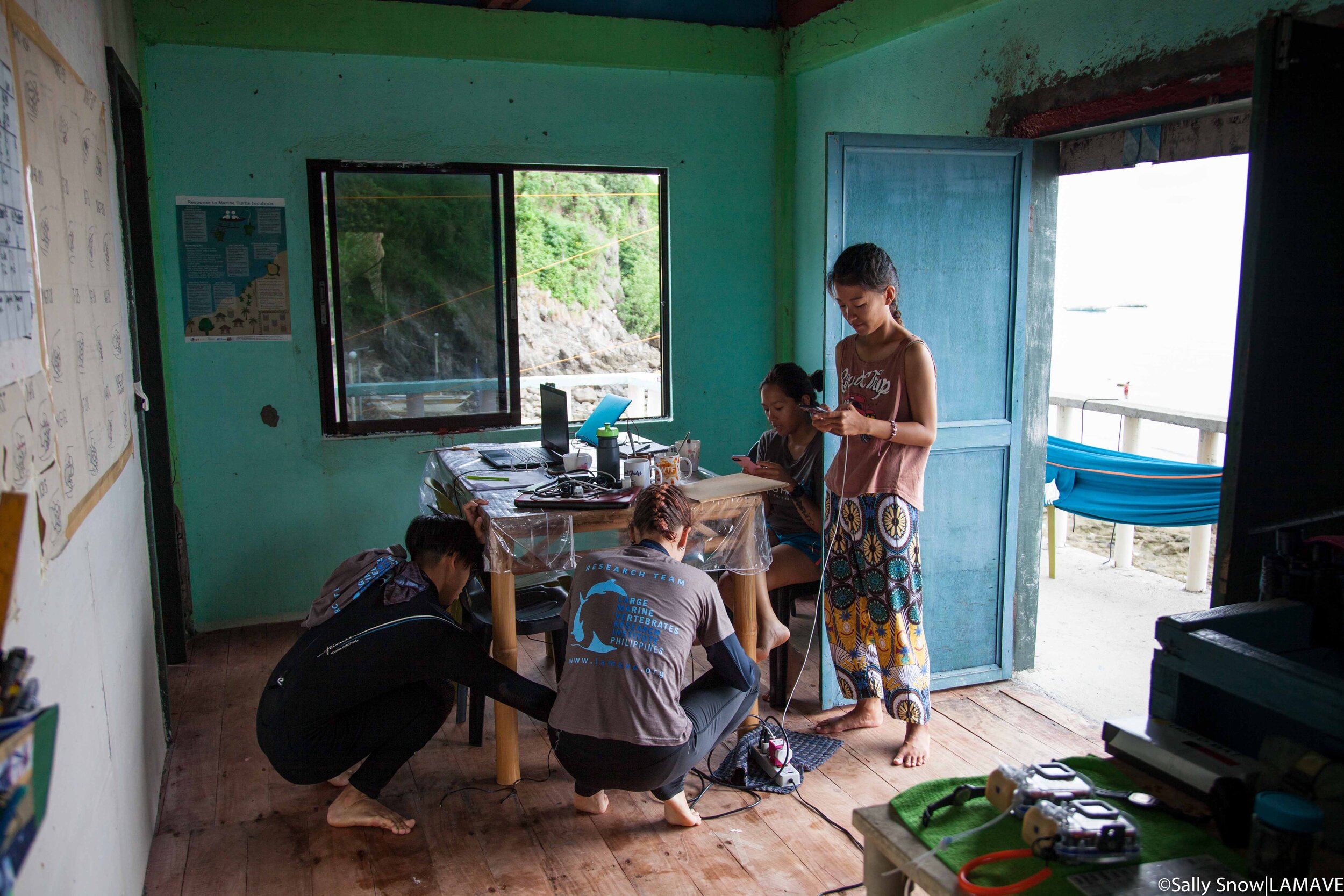
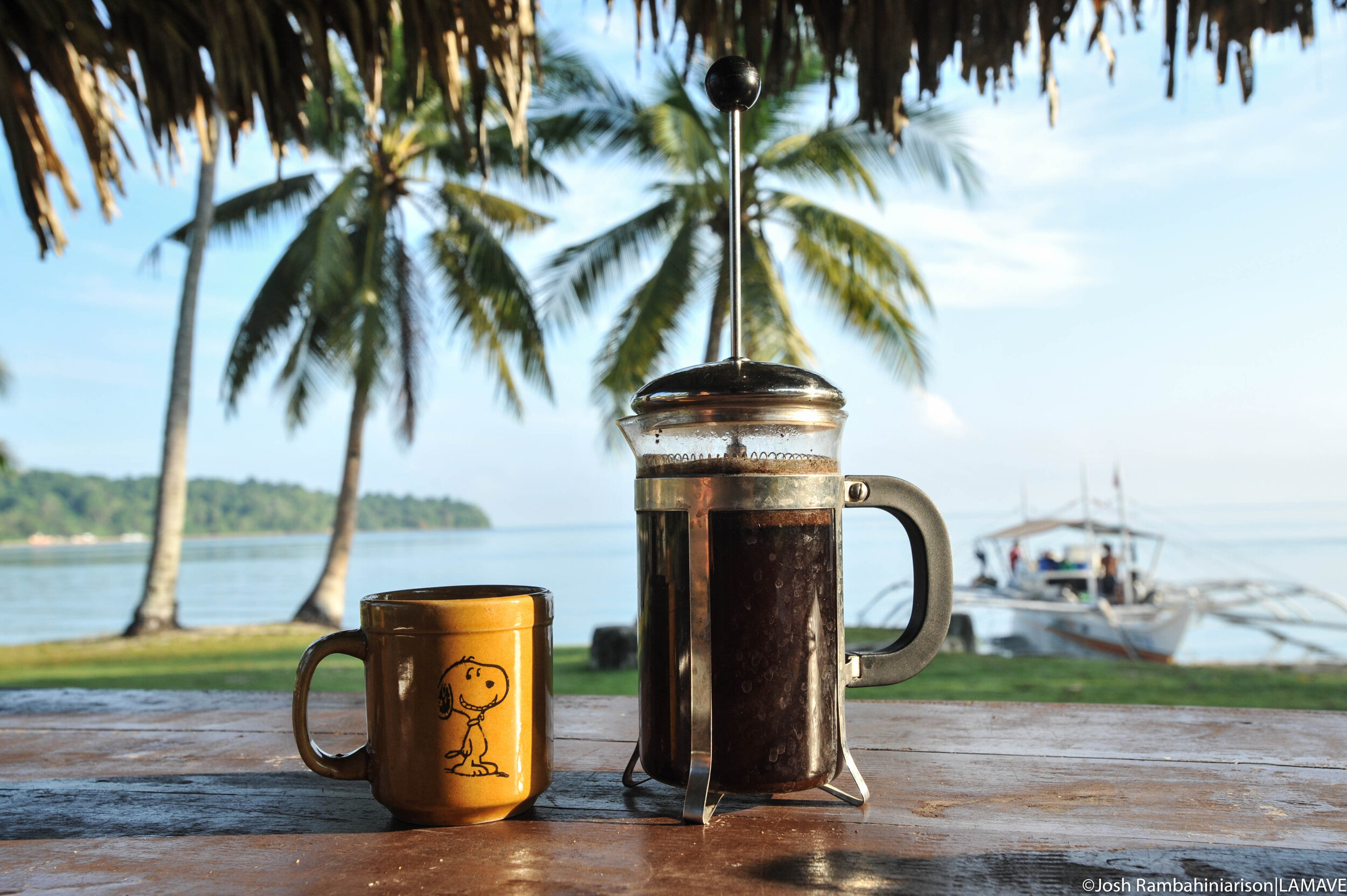
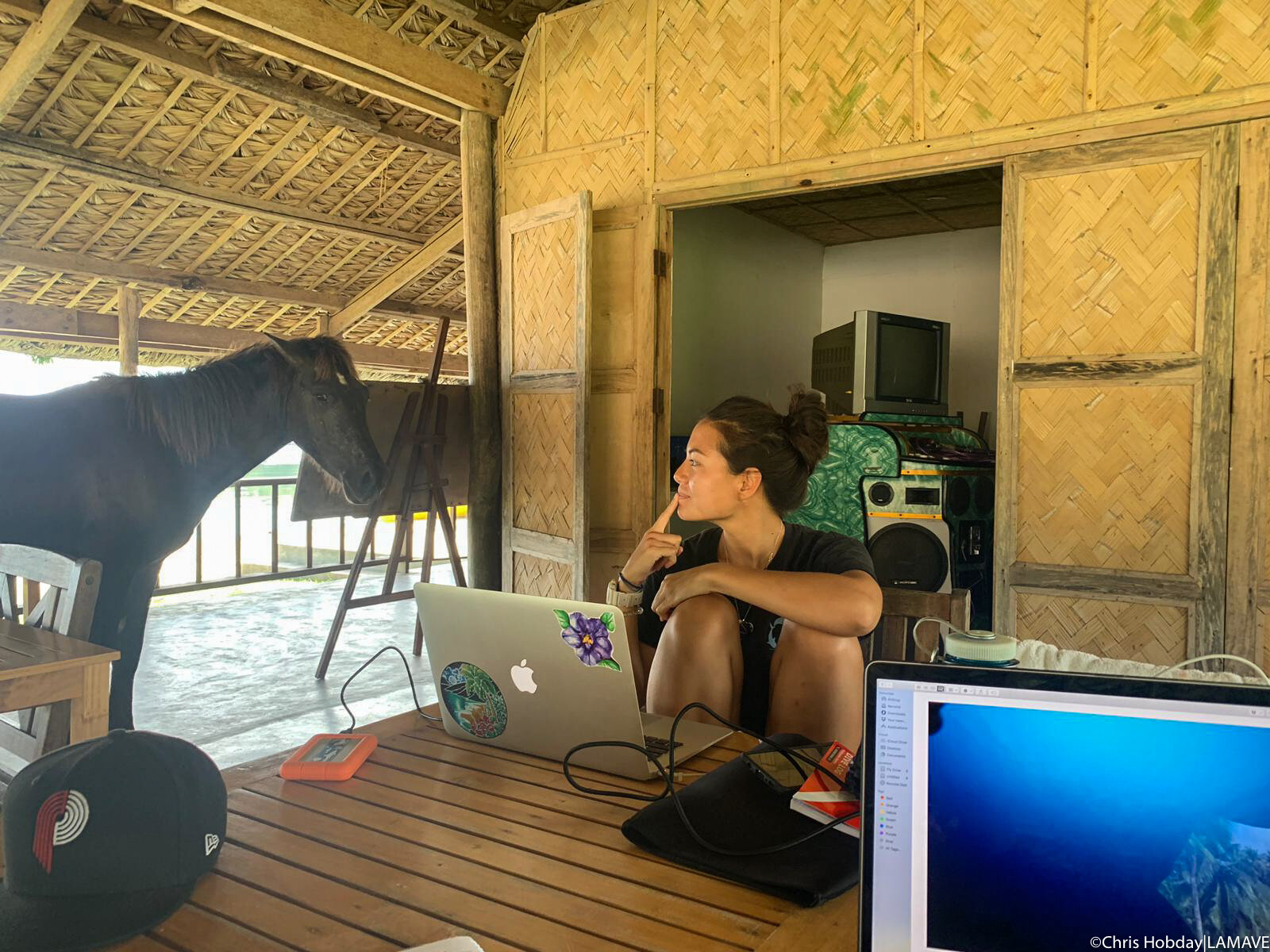
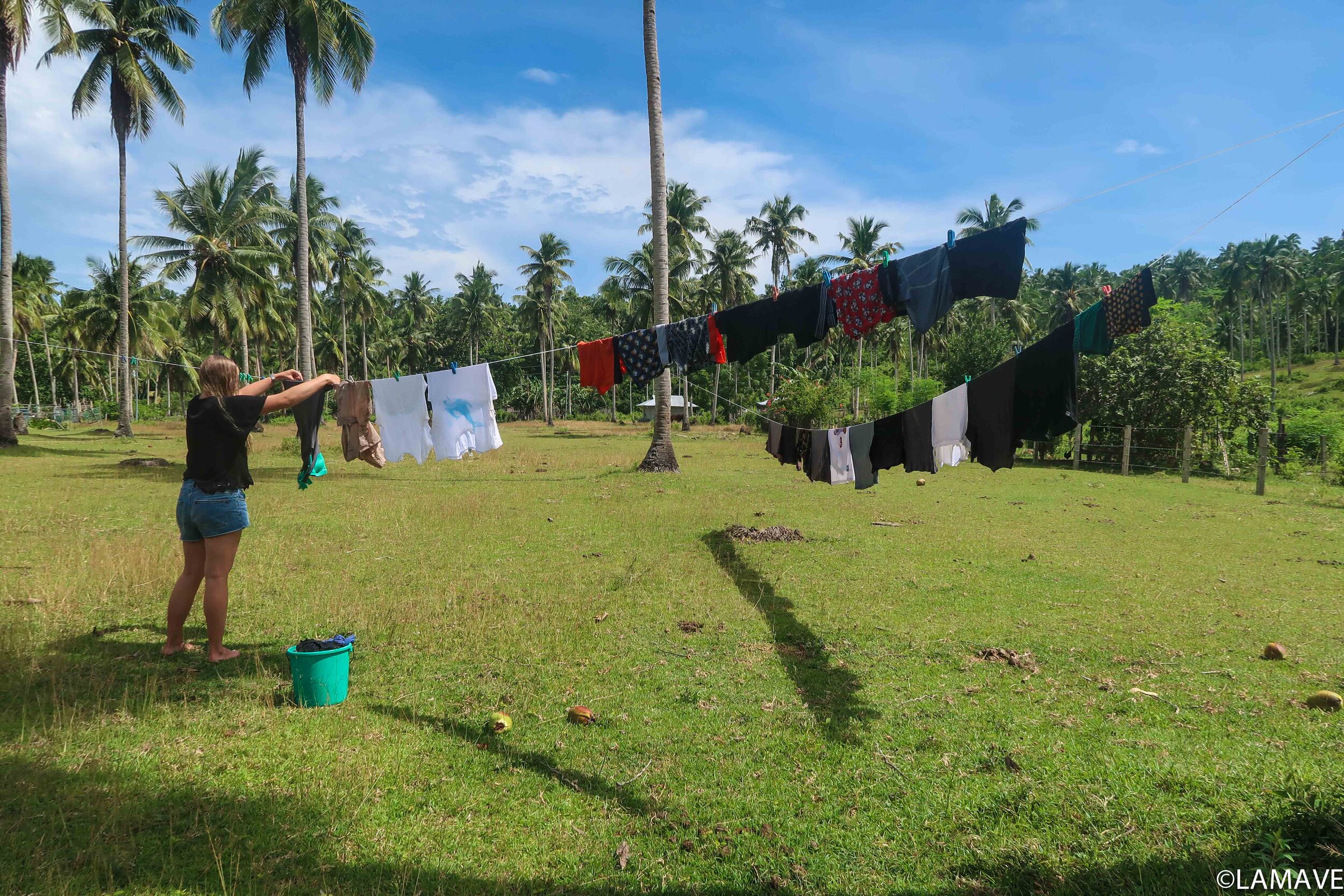
Food
Food and cooking is communal, so it is essential that volunteers provide their food intolerances, strict preferences and allergies in their application. The food we serve is plant-based and is sourced within the local community. Ingredients are often limited but the cooking creativity of the team often makes up for this! All our sites have access to local food markets and a variety of small shops where volunteers are able to buy (at their own cost) and additional snacks, luxury items or treats. Imported goods are usually only available in larger towns or cities.
Transport
All our sites rely on public transport (buses, jeepneys, tricycles) so you’ll experience the colourful options of getting around in the Philippines. On site, when needed, you and the team will use a variety of public transport to move between the project house and the research site.
As restrictions ease in the Philippines, the team are following national guidelines in respect to the capacity limits of public transport.
For safety, the use of motorcycles, with (habal-habal ride) or without (rented) a driver is strictly prohibited.
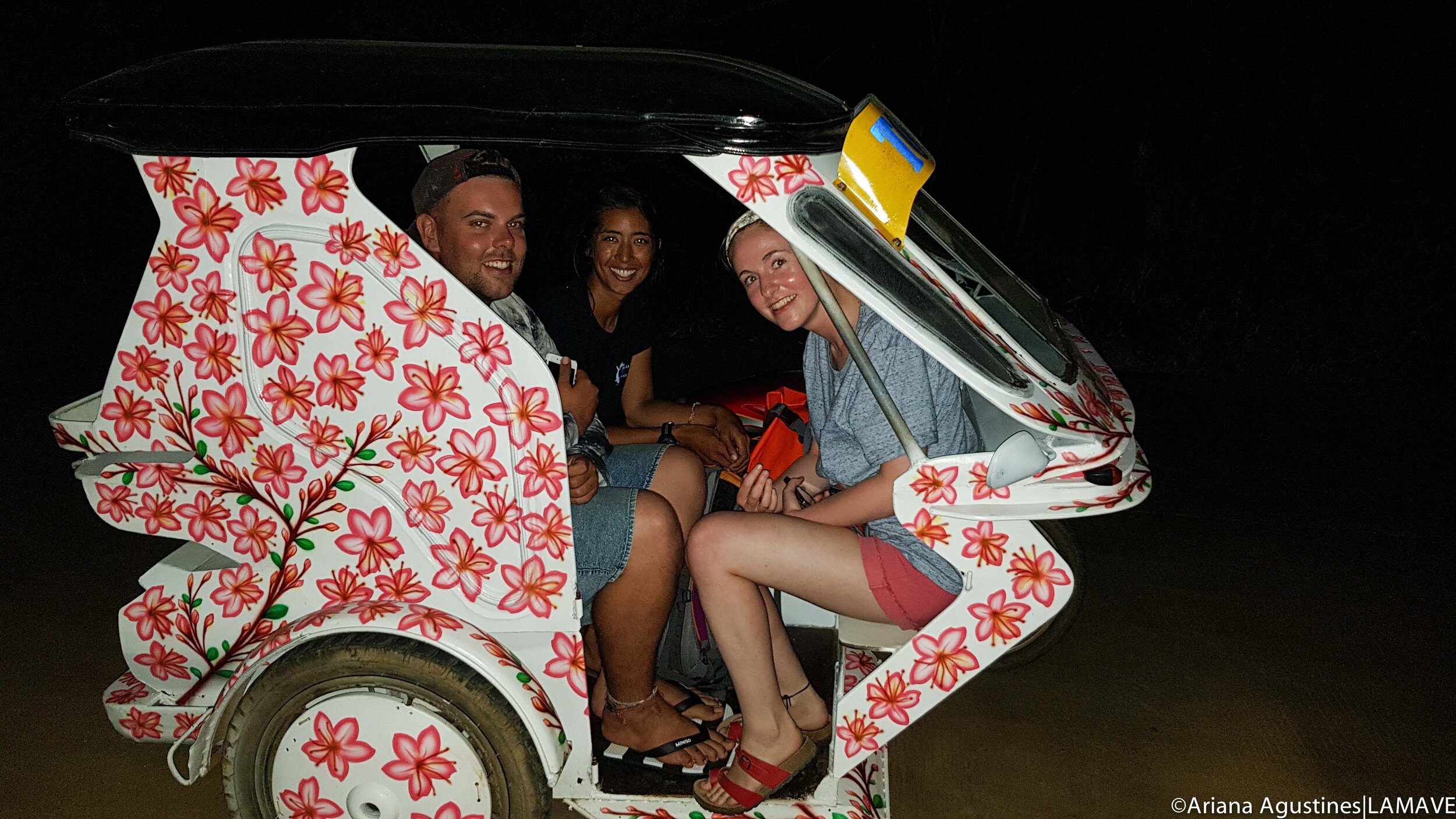
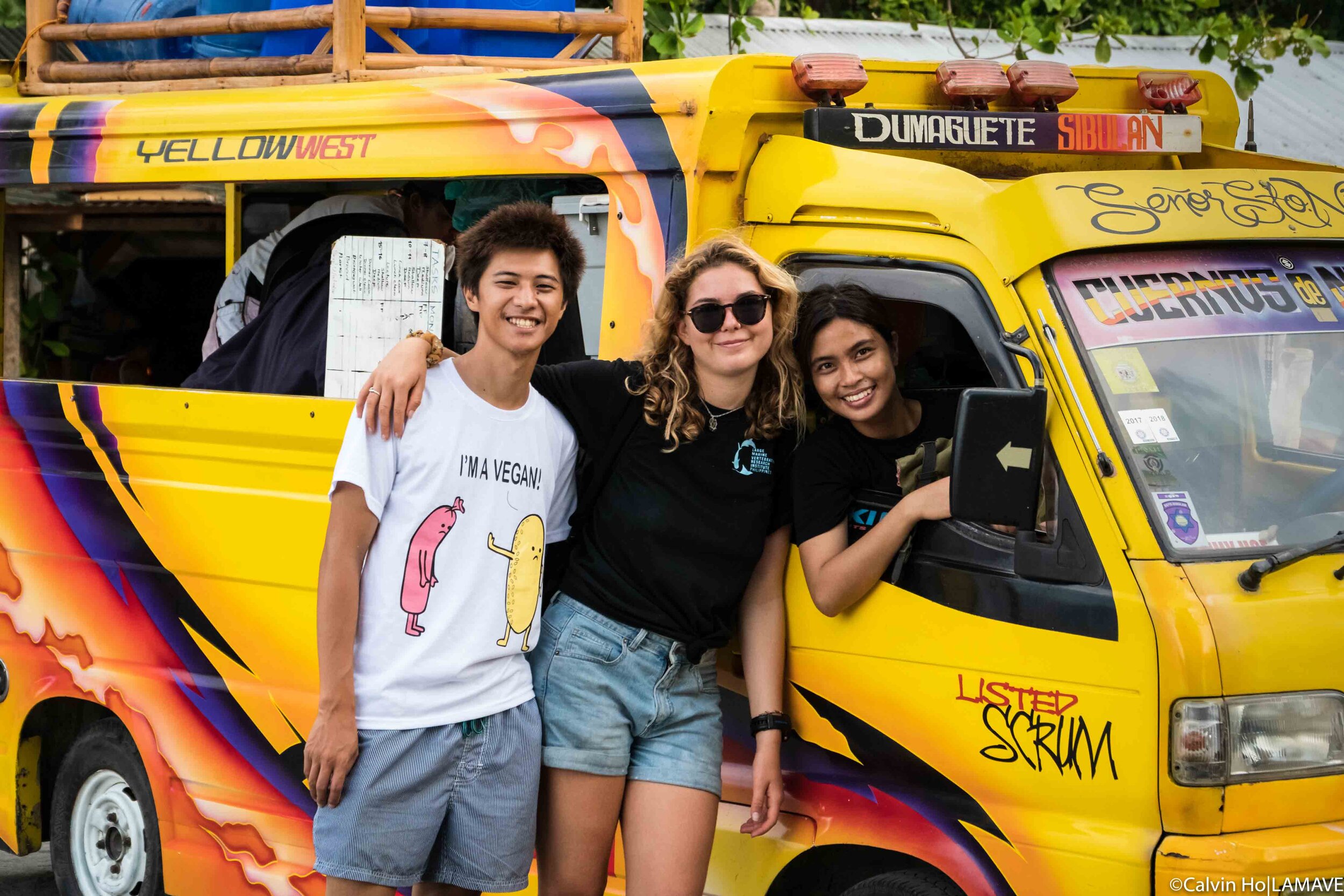
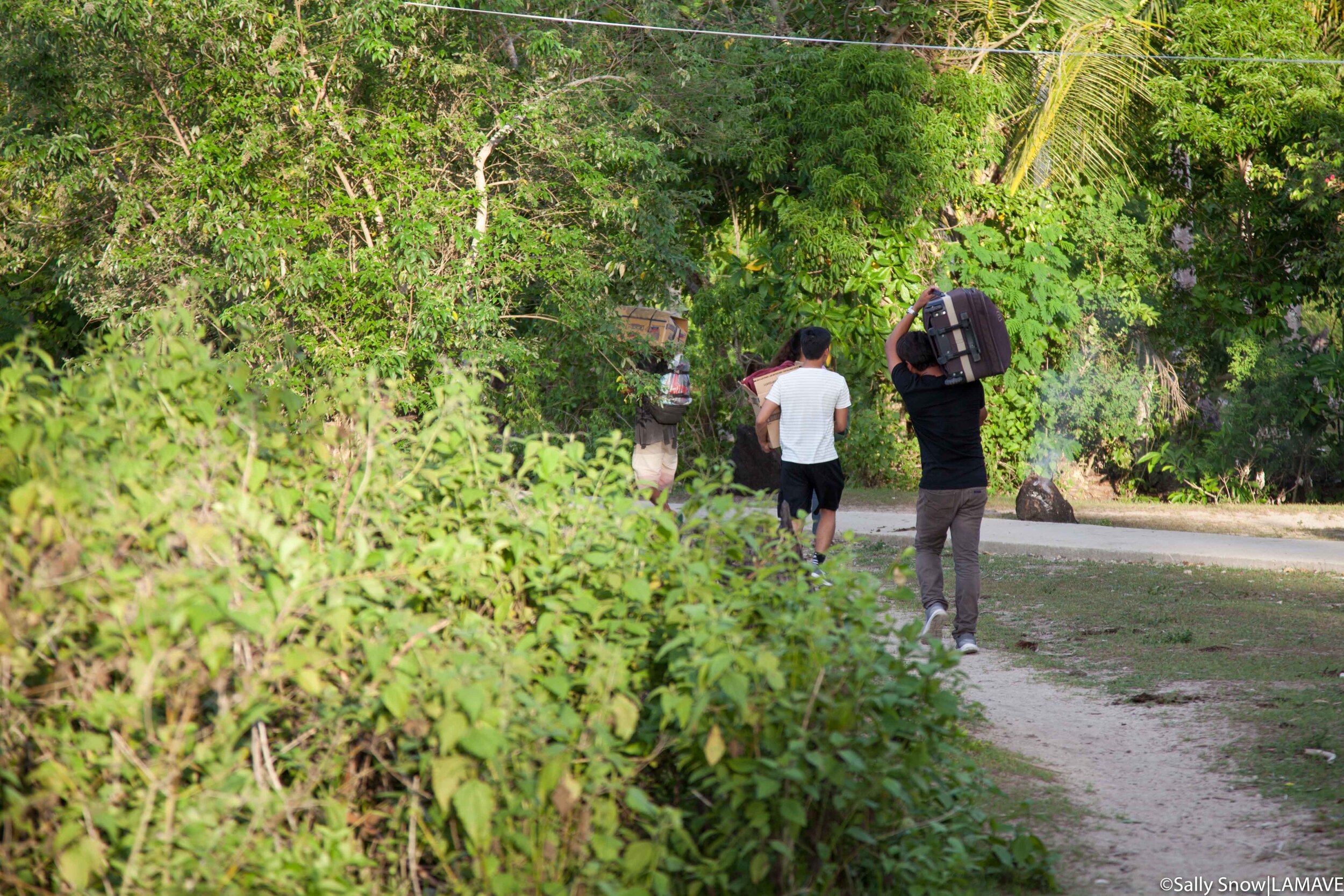
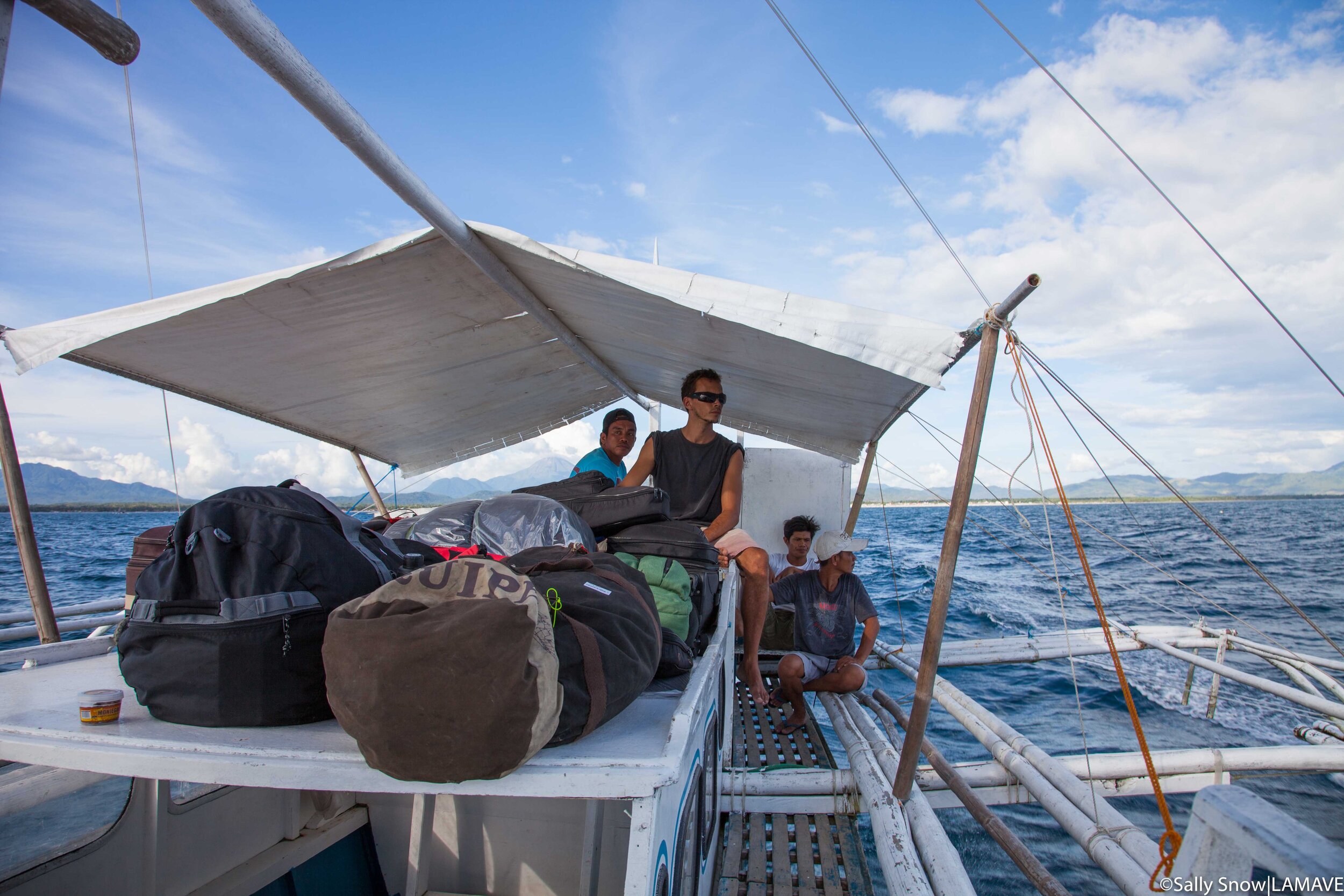
Skills
All our projects offer different skill training. As an active part of the research team you’ll be taught different skills that you’ll be required to use in the field. Living in a shared environment with an international team you’ll also learn some incredible life skills.
Project-specific research techniques include:
photo identification (whale shark, turtle, manta ray projects)
citizen science
remote underwater video systems (manta ray projects)
compliance surveys
data cleaning
importance of cataloguing data correctly
Other Skills you’ll learn:
Teamwork and Collaboration
Communication
Team building
Community engagement (when the project hosts public events)
Professionalism
Global Fluency & Perspective
Leadership
Problem solving and adaptability
Time management
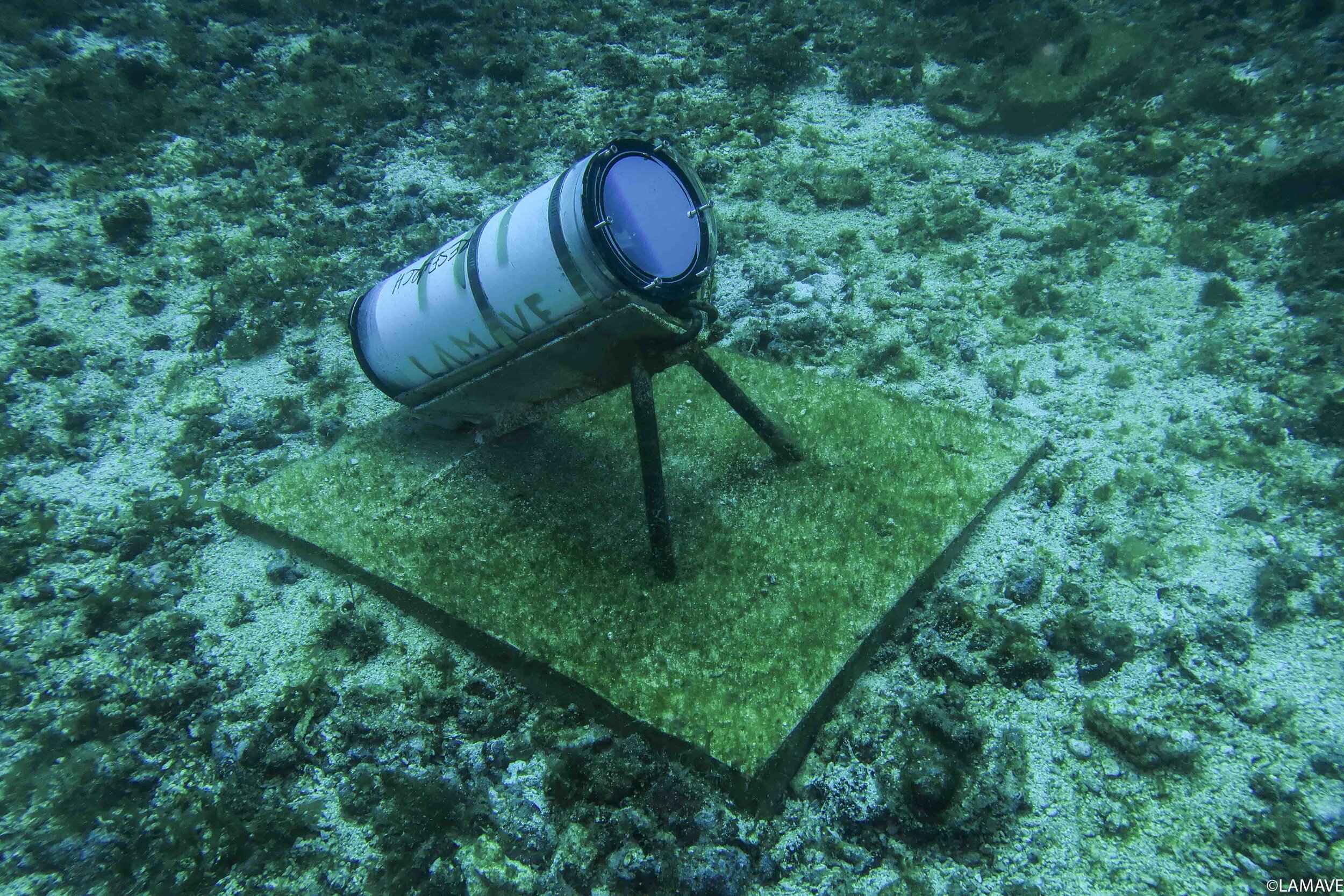
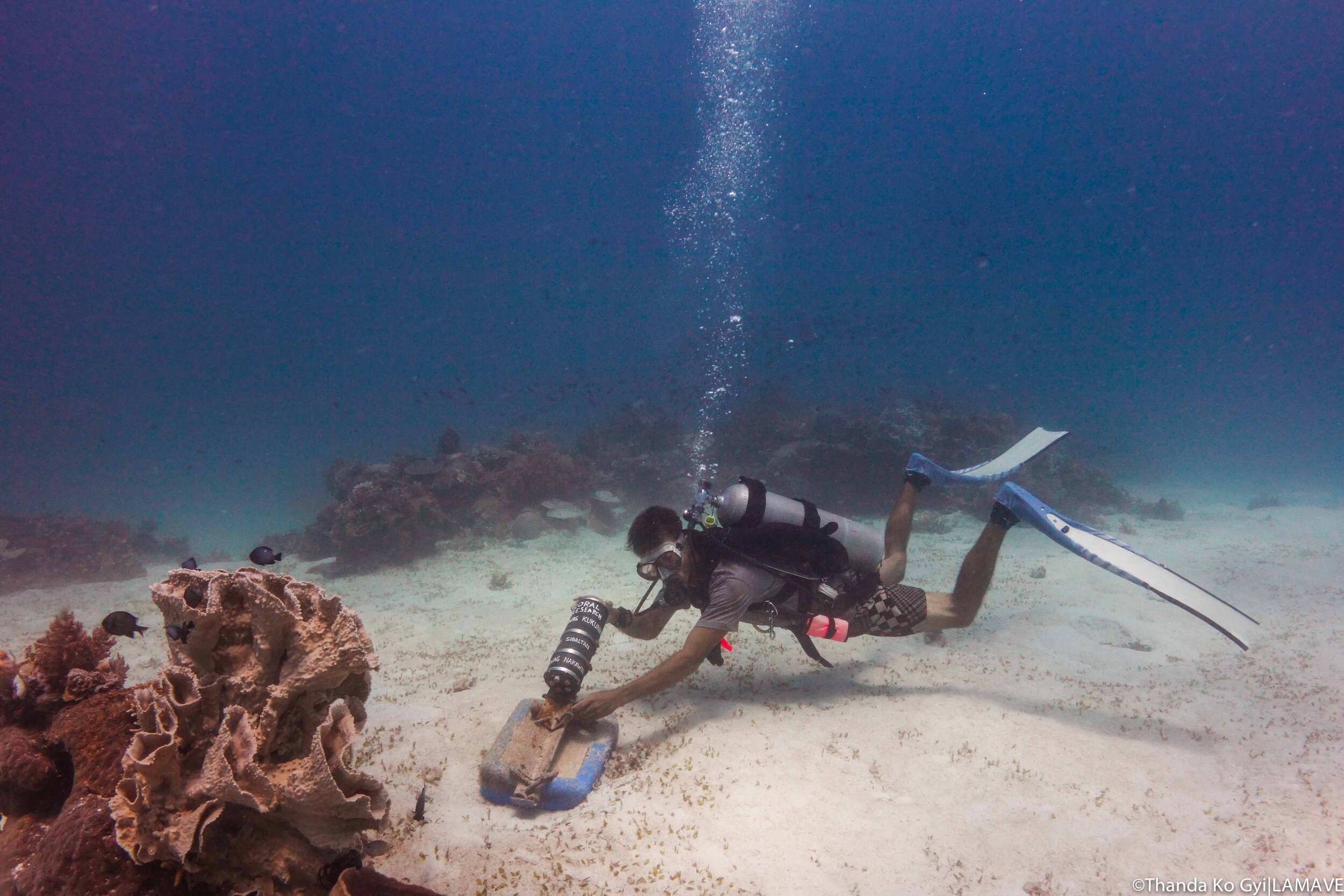
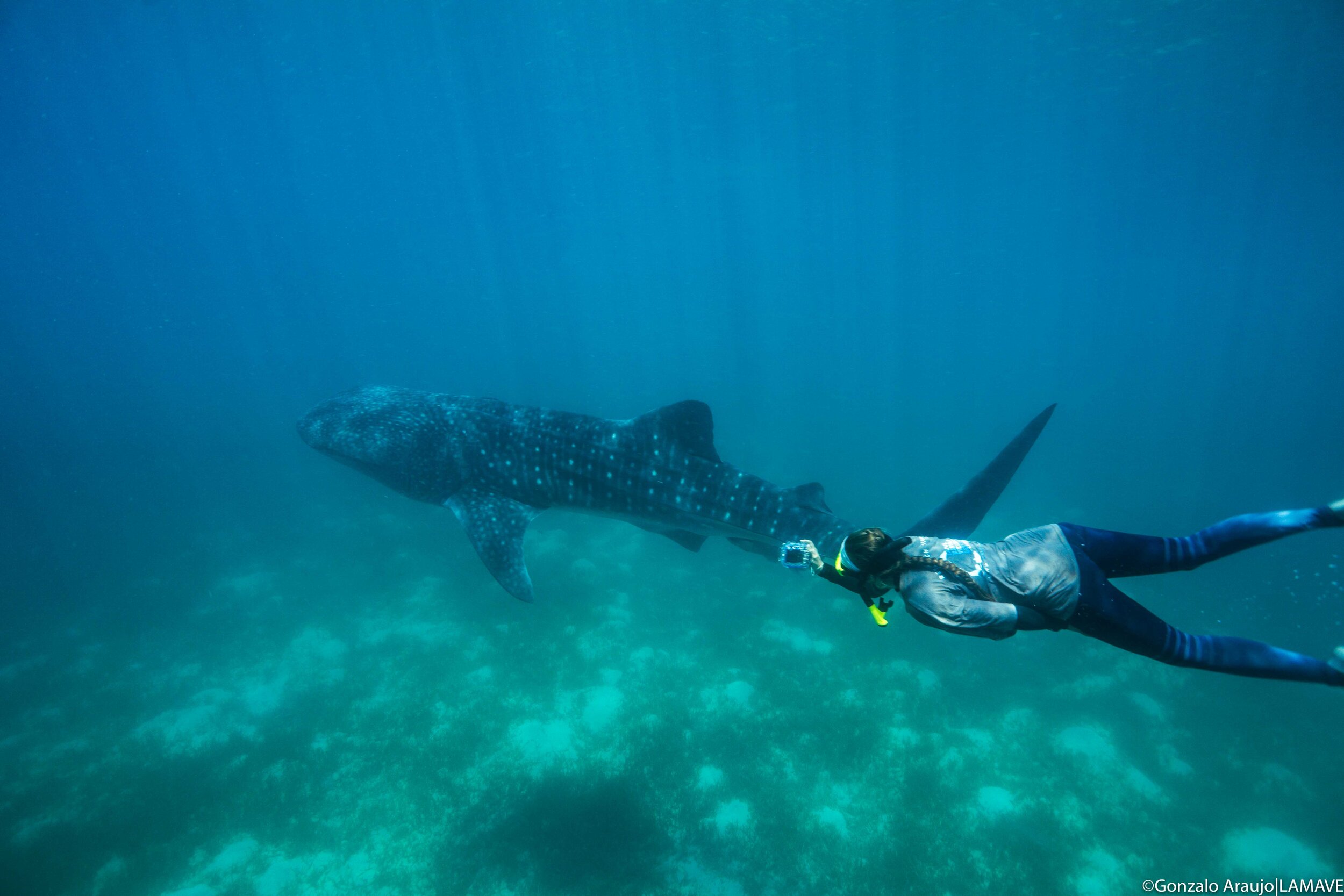
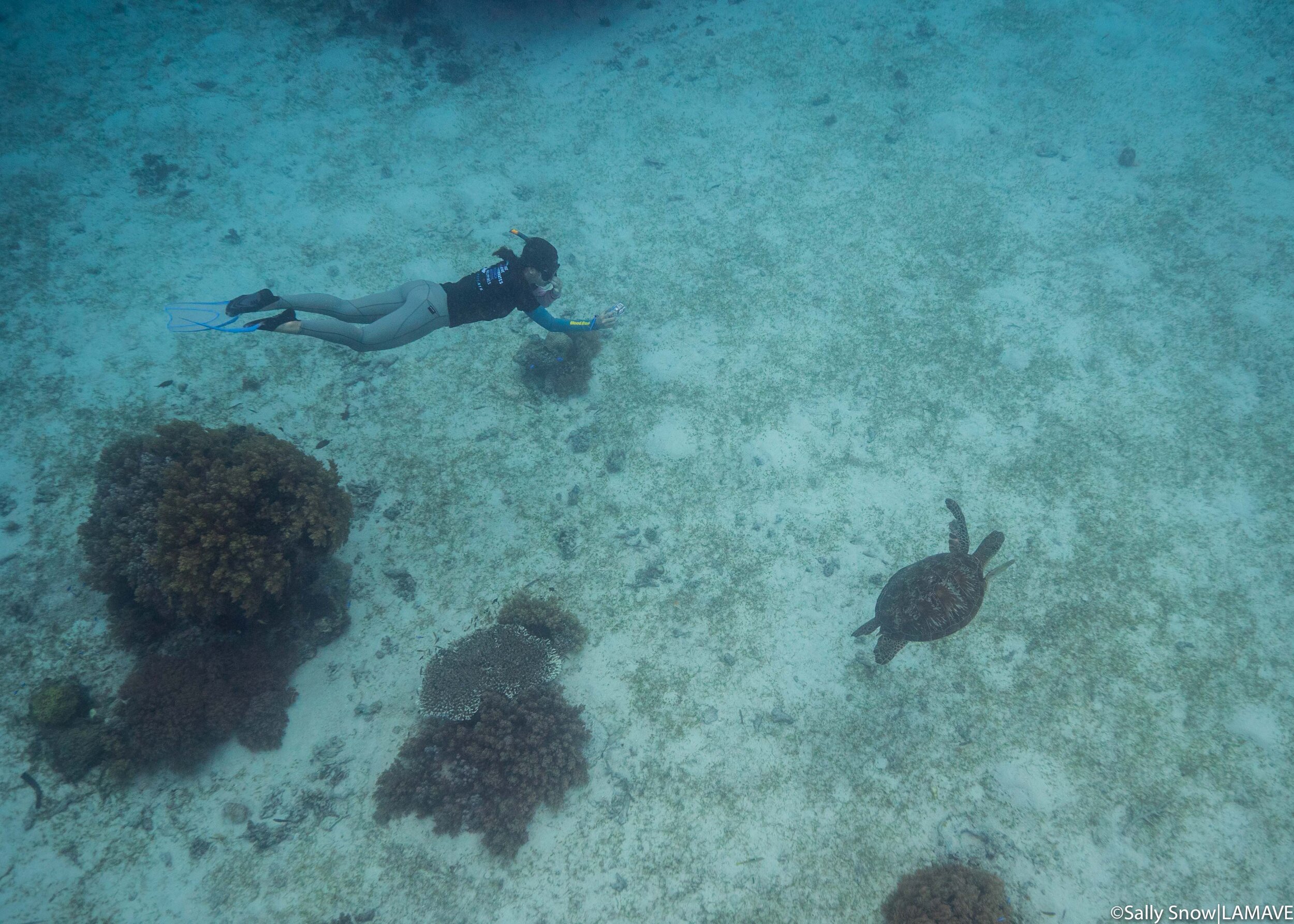
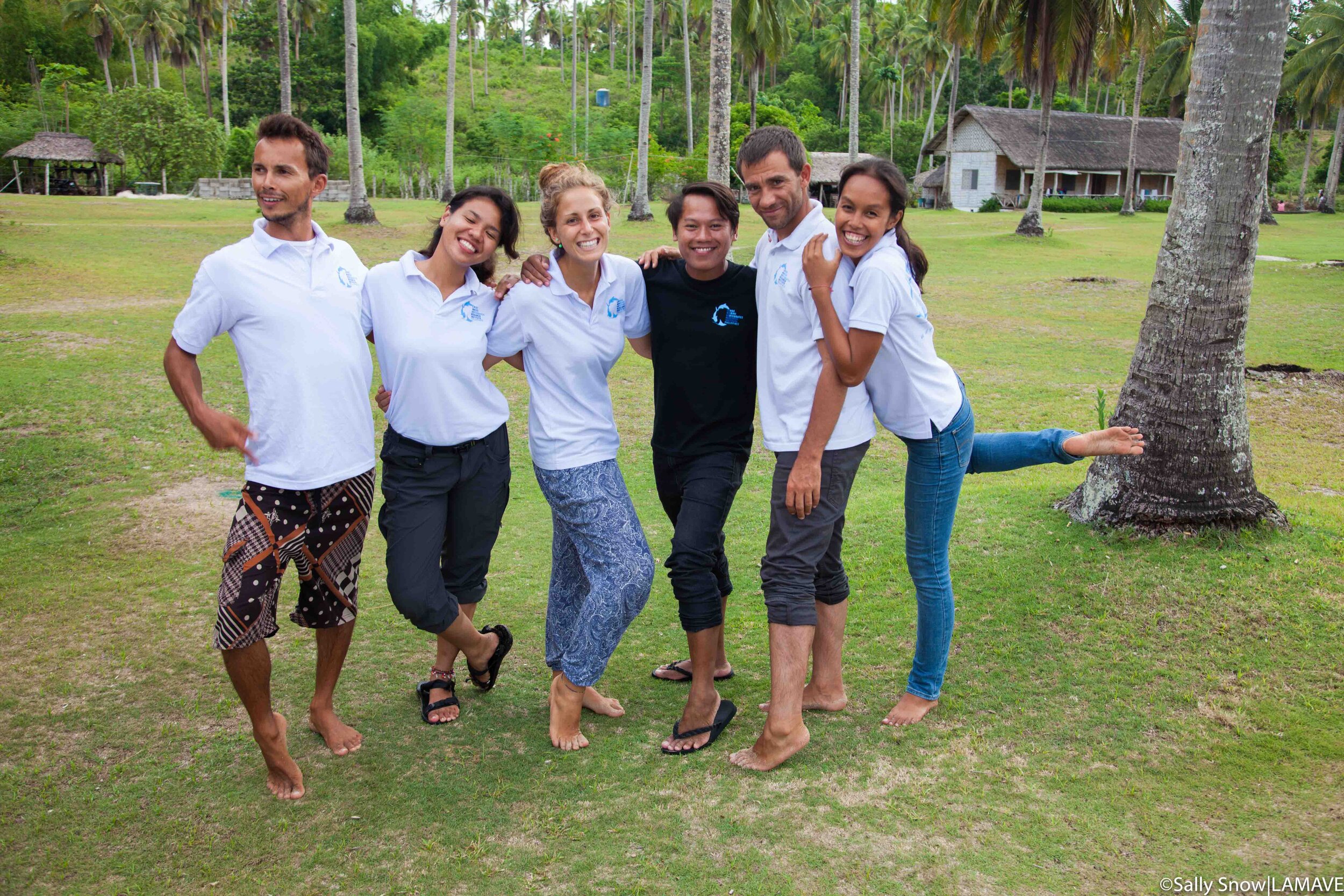
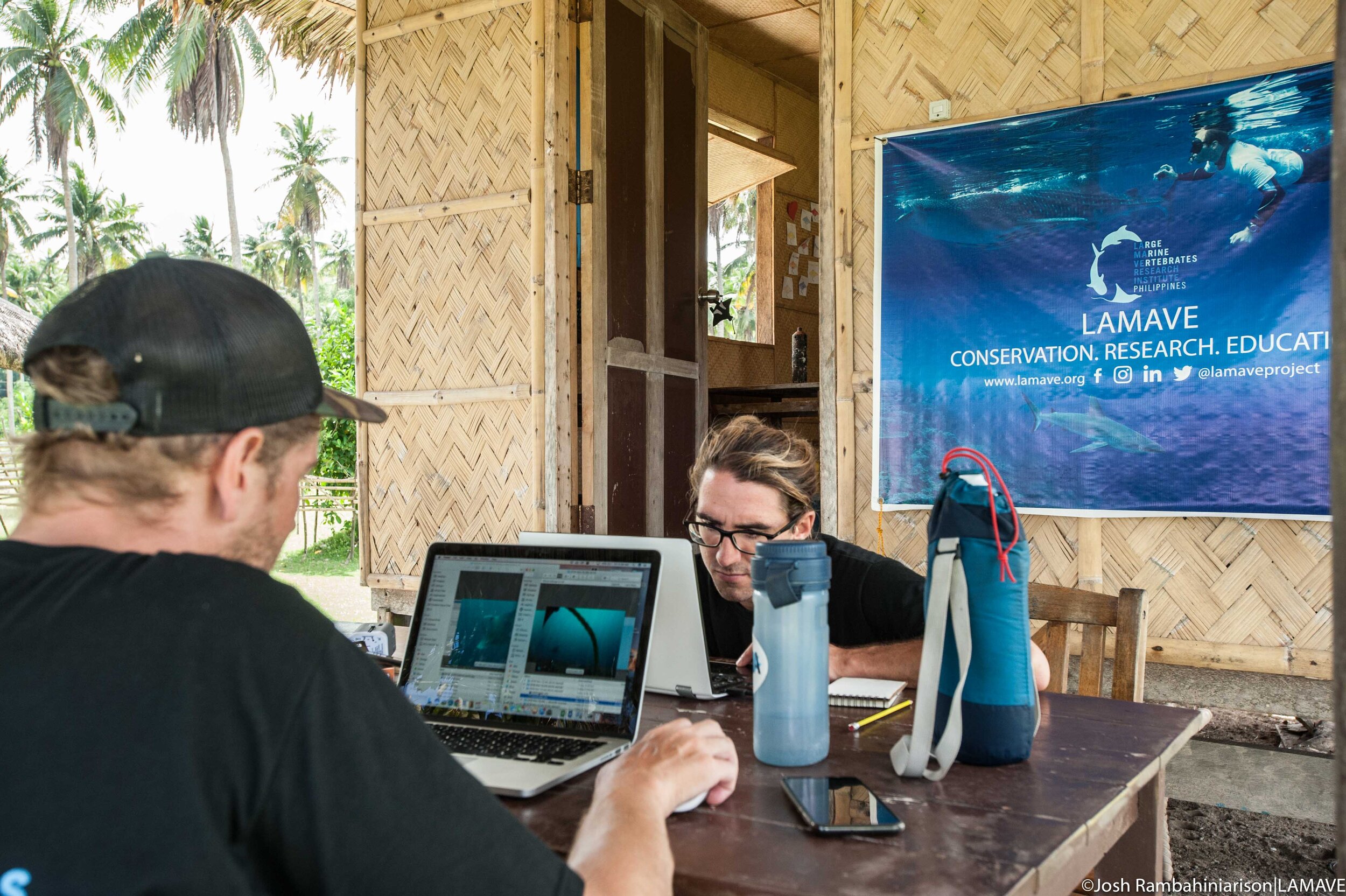
Responsibilities
What LAMAVE takes care of:
Project logistics and safety
Field equipment for research - this differs per site, but can refer to cameras for photo-identification, GPS, Remote Underwater Video Systems
Training in research methods
3 meals a day and shared accommodation in the project house
Daily transport related to project activities
LAMAVE uniform (T-shirt, in-water shirt)
You are responsible for the following:
Medical Insurance (this is required for the placement. For scuba diving based research projects your insurance must cover scuba diving)
Flights to the project site
Activities on your day off
Snacks and luxury items
Diving gear for the scuba based projects (BCD, regulator, dive computer)
Free diving fins, mask and snorkel for free diving based projects
Terms & Conditions
Before applying please be sure to read the volunteer Terms and Conditions.
Gallery
“This is honestly one of the best and definitely most new/crazy experiences of my life.”
